#Faith and good deeds are necessary to get paradise
Photo
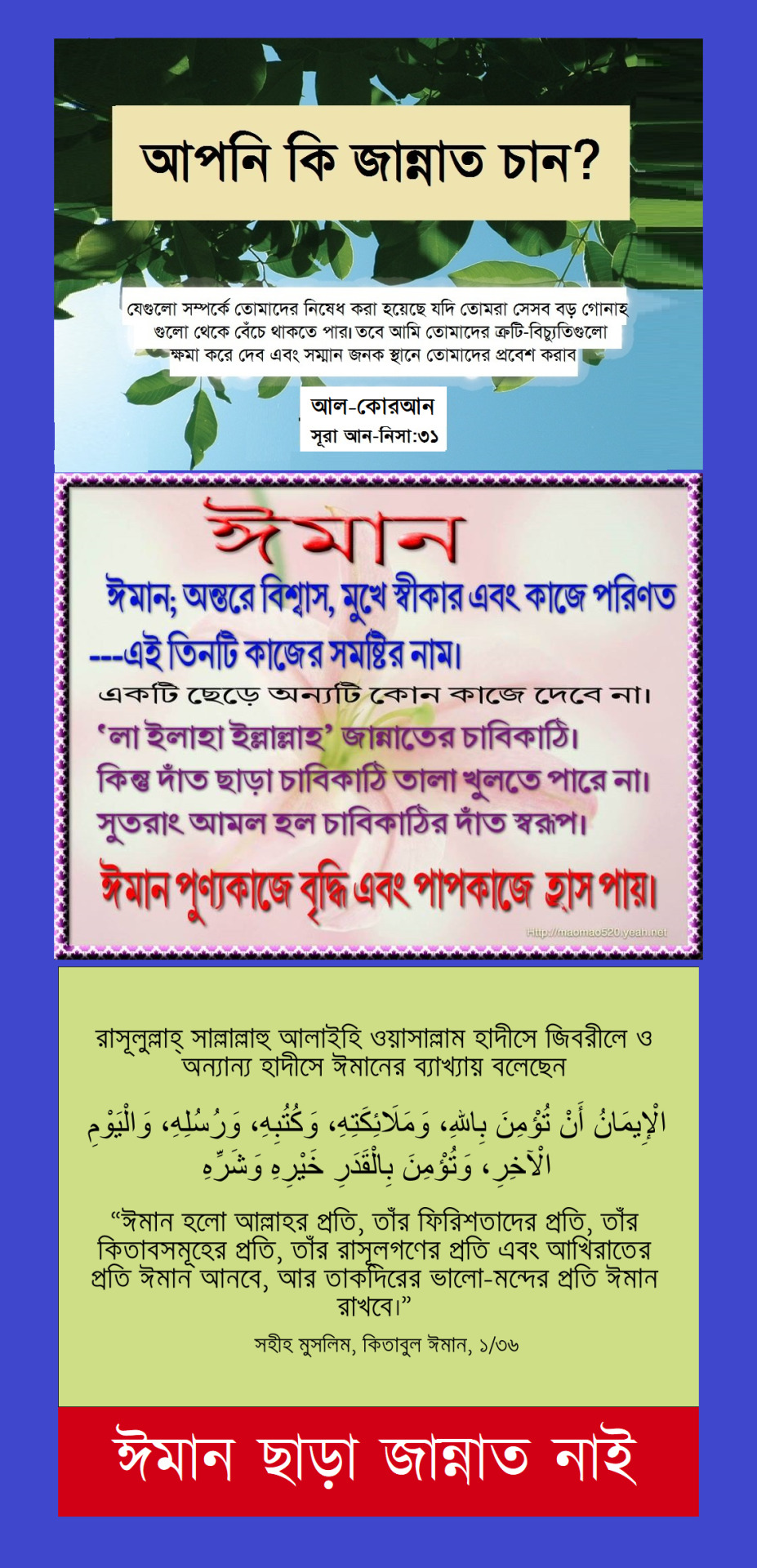


জান্নাত পেতে প্রয়োজন ঈমান ও নেক আমল
ঈমান (إِيمَان 'ঈমান', শাব্দিক অর্থ প্রচলিতমতে বিশ্বাস, মতান্তরে স্বীকৃতি) শব্দের আভিধানিক অর্থ স্বীকার করা, স্বীকৃতি দেওয়া, অনুগত হওয়া মতান্তরে দৃঢ় বিশ্বাস করা। এটি কুফর বা অস্বীকার করা বা অবাধ্যতার বিপরীত। ইসলাম ধর্মে ঈমানের অর্থ অত্যন্ত ব্যাপক।
মানবিক মূল্যবোধের বিকাশে ইমানের ভূমিকা অত্যন্ত গুরুত্বপূর্ণ। ইমান বিভিন্ন উপায়ে মানবিক মূল্যবোধের বৃদ্ধিকে উৎসাহিত করে। ঈমানের মূল অর্থ সম্পর্কে মহান আল্লাহ বলেন: “আল্লাহ ছাড়া কোনো সত্তা নেই ইবাদতের যোগ্য। ... এই ধর্মে বিশ্বাসী একজন ব্যক্তি শুধুমাত্র পরম মহান আল্লাহর সামনে মাথা নত করে।
https://www.youtube.com/watch?v=cs5l1w7Hcfs
https://www.youtube.com/watch?v=FUEQn5e0W18
https://www.youtube.com/watch?v=iZOu7jVMBlo&t=3737s
https://www.youtube.com/watch?v=VYSZkMujs8g
#how to get Jannah#tips to get paradise#Faith and good deeds are necessary to get paradise#3LevelsofFaith#3levels#6pillars#Islamicfaith#Islamicbeliefs#pillars of Iman#Iman
0 notes
Text



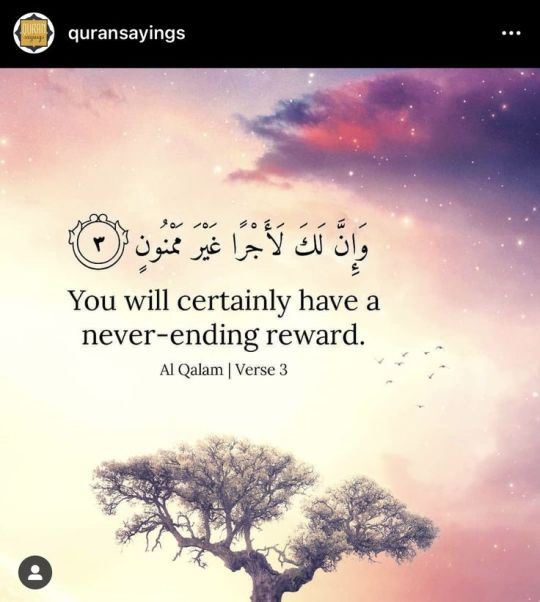
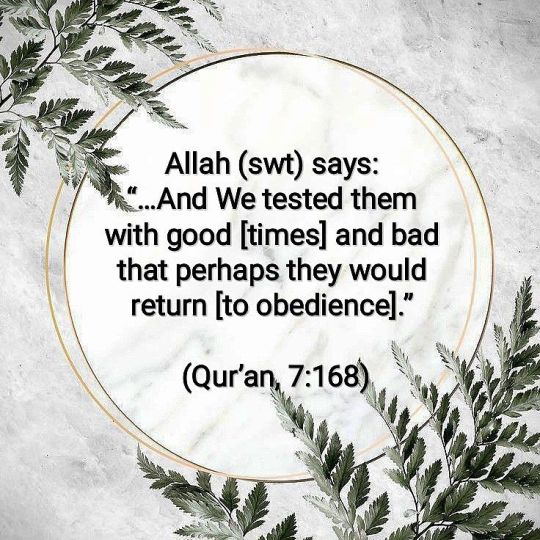

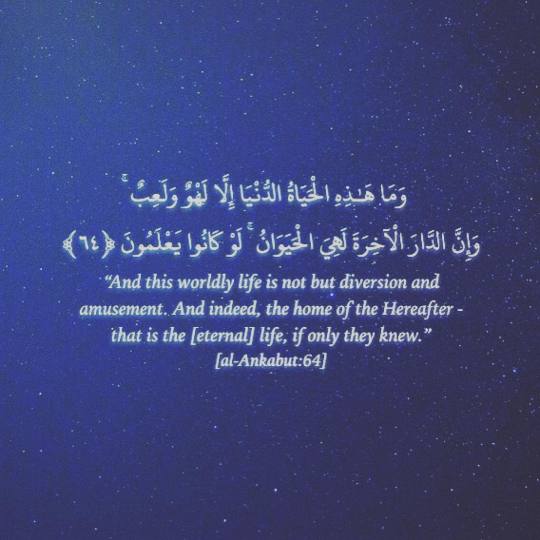







why is the belief in akhirah important
In Islamic doctrine, Al-Akhirah is necessary because the pious often suffer and unbelievers often prosper and enjoy themselves in the temporal world. To rectify that and to bring justice, Al-Akhirah with rewards of Jannah and punishment of Jahannam is necessary.
The hereafter is a form of faith
There are three basic principles of Islamic faith. Namely: Tawheed or Oneness of God, Risalat i.e. Prophets and Messengers and Akhirat i.e. Hereafter. Hereafter is the return to eternal life after death. A thorough judgment of all the actions of this life and the proper good or bad results and the enjoyment of heaven and hell as a consequence. Belief in the Hereafter is one of the five characteristics of believers. In this context, Allah Almighty says in the Holy Qur'an, "And they firmly believe in the Hereafter." (Sura-2 Baqarah, verse: 4).
Human life spans four worlds. Alame Arwaah, Alame Dunya, Alame Barzakh and Alame Akhirat.
There are many verses in the Holy Quran about the Hereafter. For example: 'And certainly the Hereafter is better or better for you than the first world. Soon your Lord will bestow upon you, so that you may be satisfied.
Hereafter is eternal, there is no death. 'Darul Akhira' is mentioned in many verses of the Holy Qur'an about the Hereafter. For example: "The Hereafter is better for the Muttakis." (Sura-7 Araf, verse: 169). (O Messenger of God) you say! O my people, do good deeds as much as you can from your position, I am also doing; Soon you will know for whom the good abode of the end.' (Sura-6 Anam, verse: 135). "Allah is calling you to the abode of peace in the Hereafter." (Sura-10 Yunus, verse: 25). Peace to you! Because you have been patient, how good is the end of the house of Paradise. 'Those who do good deeds, they will get welfare in this world, the abode of the Hereafter is better; How good is the abode of the Muttakis.' (Sura-16 Nahl, verse: 30). "Seek the abode of the Hereafter with what Allah has given you." (Surah 28:77)
Life After Death
youtube
youtube
youtube
2 notes
·
View notes
Text
DHIKR தமிழ்
" ASHHADU ALLA ILAHA Illallah "
◽Ashhadu Alla Ilaha Illallah
▫️The phrase “ashhadu alla ilaha illallah wa ashhadu anna muhammadarrasulullah” is known as the shahada (testament to faith) and is has a significant importance in Islam.
▫️It is a represents a fundamental concept of Islam being one of the five pillars, it’s also recited by Muslims daily during the five obligatory prayers, it is a necessary statement that must be said and understood by people who convert to Islam, and it is a form of prayer (dhikr) which should be said during ablution (wudu).
◽WHAT EXACTLY DOES ASHHADU ALLA ILAHA ILLALLAH MEAN?
▫️The meaning of ashadualla ilaha illallah wa ashhadu anna muhammadarrasulullah is “I bear witness that there is no deity (none truly to be worshipped) but, Allah, and I bear witness that Muhammad is the messenger of Allah”.
◽These are two testaments or professions to one’s faith:
▫️la ilaha illa llah
There is no deity but Allah.
▫️Muhammadur Rasulullah
Muhammad is the messenger of Allah.
IN ARABIC:
◽The Shahada in Arabic text,
أشهدُ أنْ لا إلهَ إلاَّ اللهُ وأشهدُ أنَّ محمّداً رسولُ الله
▫️Pronounced: Ash-hadu alla ilaha illallah, wa ash-hadu anna Muhammadar-Rasulullah
◽SAID TO BECOME A MUSLIM
▫️To join the Muslim Ummah you would recite the shahada and have 2 witnesses present. Now, having witnesses are not strictly required to convert — Allah knows all things, so a Shahada said alone, with conviction, would make you a Muslim. To become legally recognized in your local mosque and get acquainted with those in your community, you generally must make your Shahada in front of witnesses—two Muslims or an Imam. A complete understanding of the Shahada must be understood and said sincerely in order for the conversion to be taken seriously. Tricking other non-muslims to recite this phrase in a joking manner does not establish them a Muslim.
◽SAID DURING PRAYER (SALAT)
▫️During salat before the taslim (concluding portion of prayer where you recite salam) you would recite attahiyat. This dua also contains the testament of faith while you raise the index finger signifying the Tawhid or the oneness of Allah.
▫️At-Tahiy-yatu lil-lahi was-salawatu wat-tay yibatu, As-Salamy ‘alika ay-yuhan-nabiy-yu wa rahma tullahi wa barakatu, As salamu ‘alayna wa ‘ala ‘ibadil-la his-saliheen ashadu an la ilaha illallah wa ashhadu anna muhammadan rasulu llah.
◽ALSO TO BE RECITED DURING WUDU
▫️It is the Sunnah of Prophet Muhammad to recite Shahada during Wudu.
▫️It was narrated that ‘Umar bin Al-Khattab said:
◽“The Messenger of Allah (ﷺ) said: ‘Whoever performs Wudu’ and does it well, then says: “Ashhadu an la ilaha ill-Allah was ashhadu anna Muhammadan ‘abduhu wa rasuluh (I bear witness that there is none worthy of worship except Allah, and I bear witness that Muhammad is his slave and Messenger),” eight gates of Paradise will be opened for him, and he may enter through whichever one he wishes.'”
Grade: Sahih (Darussalam)
Sunan An Nasai (632) and Sunan Ibn Majah (470)
▫️To a devout and practicing Muslim this one phrase would be said and heard multiple times a day as remembrance of Allah Azzawajal and his messenger.
▫️“Verily, the hypocrites seek to deceive Allah, but it is He Who deceives them. And when they stand up for As-Salat (the prayer), they stand with laziness and to be seen of men, and they do not remember Allah but little” An-Nisa ayat142
▫️Let us not get lazy and understand the meaning of what we are saying and not just pay lip service to these words.
“Take on only as much as you can do of good deeds, for the best of deeds is that which is done consistently, even if it is little.”
– Sunan Ibn Majah 4240
DHIKR
_"அஷ்ஹது அல்லா இலாஹா இல்லல்லாஹ்"
◽அஷ்ஹது அல்லா இலாஹ இல்லல்லாஹ்
▫️“அஷ்ஹது அல்லா இலாஹ இல்லல்லாஹ் வ அஷ்ஹது அன்ன முஹம்மதர்ரஸுலுல்லாஹ்” என்ற சொற்றொடர் ஷஹாதா (��ம்பிக்கைக்கான சான்று) என்று அறியப்படுகிறது மற்றும் இஸ்லாத்தில் குறிப்பிடத்தக்க முக்கியத்துவம் வாய்ந்தது.
▫️இது இஸ்லாம் ஐந்து தூண்களில் ஒன்றாகும் என்பதற்கான அடிப்படைக் கருத்தைப் பிரதிபலிக்கிறது, இது ஐந்து கட்டாயத் தொழுகைகளின் போது தினசரி முஸ்லிம்களால் ஓதப்படுகிறது, இது இஸ்லாத்திற்கு மாறிய மக்களால் சொல்லப்பட்டு புரிந்துகொள்ளப்பட வேண்டிய அவசியமான அறிக்கையாகும், மேலும் இது தொழுகையின் ஒரு வடிவம் (திக்ர்), இது கழுவுதலின் போது (வுடு) கூறப்பட வேண்டும்.
◽அஷ்ஹது அல்லா இலாஹா இல்லல்லாஹ் என்றால் சரியாக என்ன அர்த்தம்?
▫️அஷாதுஅல்லா இலாஹ இல்லல்லாஹ் வ அஷ்ஹது அன்ன முஹம்மதர்ரஸுலுல்லாஹ் என்பதன் பொருள் என்னவென்றால், "அல்லாஹ் (உண்மையில் வணக்கத்திற்குரியவன்) இல்லை என்று நான் சாட்சி கூறுகிறேன், மேலும் முஹம்மது அல்லாஹ்வின் தூதர் என்று சாட்சி கூறுகிறேன்".
◽இவை ஒருவரின் நம்பிக்கைக்கு இரண்டு சான்றுகள் அல்லது தொழில்கள்:
▫️லா இலாஹா இல்லல்லாஹ்
அல்லாஹ்வைத் தவிர வேறு தெய்வம் இல்லை.
▫️முஹம்மதுர் ரசூலுல்லாஹ்
முஹம்மது அல்லாஹ்வின் தூதர்.
அரபியில்:
◽அரபு உரையில் ஷஹாதா,
أشهد أنۡ لا إلهَ إلاَّ اللهُ وأشهدُ أنَّ محمّداً رسولُ الله
▫️உச்சரிப்பு: அஷ்-ஹது அல்லா இலாஹ இல்லல்லாஹ், வ அஷ்-ஹது அன்ன முஹம்மதர்-ரசூலுல்லாஹ்
◽முஸ்லிம் ஆக வேண்டும் என்றால்
▫️முஸ்லிம் உம்மாவில் சேர நீங்கள் ஷஹாதாவை ஓத வேண்டும் மற்றும் 2 சாட்சிகள் இருக்க வேண்டும். இப்போது, மதம் மாறுவதற்கு சாட்சிகள் இருப்பது கண்டிப்பாகத் தேவையில்லை - அல்லாஹ் எல்லாவற்றையும் அறிந்தவன், எனவே ஒரு ஷஹாதா மட்டும், உறுதியுடன் சொன்னால், அது உன்னை முஸ்லிமாக மாற்றும். உங்கள் உள்ளூர் மசூதியில் சட்டப்பூர்வமாக அங்கீகரிக்கப்படுவதற்கும், உங்கள் சமூகத்தில் உள்ளவர்களுடன் பழகுவதற்கும், நீங்கள் பொதுவாக இரண்டு முஸ்லிம்கள் அல்லது ஒரு இமாம் சாட்சிகளுக்கு முன்னால் உங்கள் ஷஹாதாவைச் செய்ய வேண்டும். ஷஹாதாவைப் பற்றிய முழுமையான புரிதல் புரிந்து கொள்ளப்பட வேண்டும் மற்றும் மனமாற்றம் தீவிரமாக எடுத்துக் கொள்ளப்பட வேண்டும். மற்ற முஸ்லிமல்லாதவர்களை ஏமாற்றி இந்த சொற்றொடரை நகைச்சுவையாகக் கூறுவது அவர்களை முஸ்லிமாக நிலைநிறுத்தாது.
◽தொழுகையின் போது கூறப்பட்ட வேண்டும் (ஸலாத்)
▫️தஸ்லிமுக்கு முன் தொழுகையின் போது (தொழுகையின் இறுதிப் பகுதி, அங்கு நீங்கள் சலாம் கூறுங்கள்) நீங்கள் அத்தஹியாத்தை ஓதுவீர்கள். நீங்கள் ஆள்காட்டி விரலை உயர்த்தும்போது இந்த துவாவில் நம்பிக்கையின் சான்றையும் கொண்டுள்ளது, இது தவ்ஹீத் அல்லது அல்லாஹ்வின் ஒருமையைக் குறிக்கிறது.
▫️அத்-தஹிய்-யது லில்-லாஹி வஸ்-சலவது வாட்-டை யிபது, அஸ்-சலாமி 'அலிகா அய்-யுஹான்-நபி-யு வ ரஹ்மா துல்லாஹி வ பரகாது, அஸ் சலாமு 'அலைனா வ'அலா'இபாதில்-லா ஹிஸ்-சாலிஹீன் அஷாது அன் லா இலாஹ இல்லல்லாஹ் வ அஷ்ஹது அன்ன முஹம்மதன் ரசூலுல்லாஹ்.
◽உடுவின் போது ஓத வேண்டும்
▫️உளூவின் போது ஷஹாதாவை ஓதுவது முஹம்மது நபியின் சுன்னாவாகும்.
▫️உமர் பின் அல்-கத்தாப் கூறியதாக அறிவிக்கப்பட்டது:
◽“அல்லாஹ்வின் தூதர் (ஸல்) அவர்கள் கூறினார்கள்: 'வூது' செய்து அதைச் சிறப்பாகச் செய்பவர், பின்னர் கூறுகிறார்: "அஷ்ஹது அன் லா இலாஹ இல்லல்லாஹ் அஷ்ஹது அன்ன முஹம்மதின் அப்துஹு வ ரசூலுஹ் (இதற்குத் தகுதியானவர் யாரும் இல்லை என்று நான் சாட்சி கூறுகிறேன். அல்லாஹ்வைத் தவிர வழிபடுங்கள், மேலும் முஹம்மது அவருடைய அடிமை மற்றும் தூதர் என்று நான் சாட்சி கூறுகிறேன்)"" அவருக்கு சொர்க்கத்தின் எட்டு வாயில்கள் திறக்கப்படும், மேலும் அவர் விரும்பிய வழியாக நுழையலாம்.
தரம்: சாஹிஹ் (தாருஸ்ஸலாம்)
சுனன் அன் நசாய் (632) மற்றும் சுனன் இப்னு மாஜா (470)
▫️அல்லாஹ் அஸ்ஸவஜல் மற்றும் அவனது தூதரின் நினைவாக இந்த ஒரு வாக்கியத்தை ஒரு நாளுக்கு பல முறை கூறுவதும், கேட்பதுமான ஒரு பக்தி மற்றும் நடைமுறை முஸ்லீம்களுக்கு.
▫️“நிச்சயமாக, நயவஞ்சகர்கள் அல்லாஹ்வை ஏமாற்ற முற்படுகிறார்கள், ஆனால் அவன்தான் அவர்களை ஏமாற்றுகிறான். அவர்கள் அஸ்ஸலாத்துக்காக (தொழுகைக்காக) நிற்கும் போது, அவர்கள் சோம்பேறித்தனத்துடனும், மனிதர்களின் பார்வைக்காகவும் நிற்கிறார்கள், மேலும் அவர்கள் அல்லாஹ்வை சிறிதளவே நினைப்பதில்லை” அன்னிஸா அயத்142
▫️நாம் சோம்பேறியாகி விடாமல், நாம் சொல்வதன் அர்த்தத்தைப் புரிந்துகொள்வோம், இந்த வார்த்தைகளுக்கு உதட்டளவில் பணம் செலுத்தாமல் இருப்போம்.
"நற்செயல்களில் உங்களால் எவ்வளவு முடியுமோ அதை மட்டும் எடுத்துக் கொள்ளுங்கள், ஏனென்றால் சிறியதாக இருந்தாலும் தொடர்ந்து செய்வதே சிறந்த செயல்."
– சுனன் இப்னு மாஜா 4240

0 notes
Text

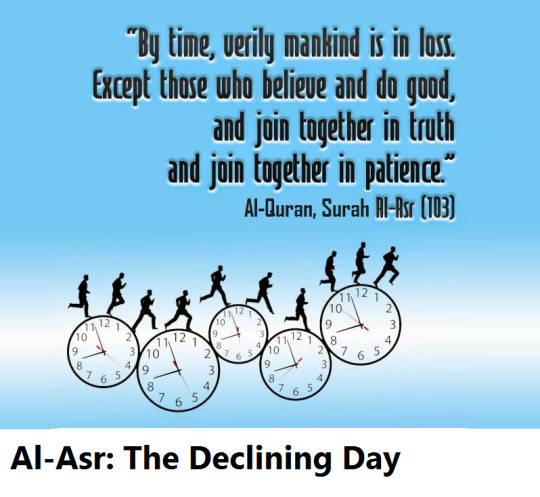

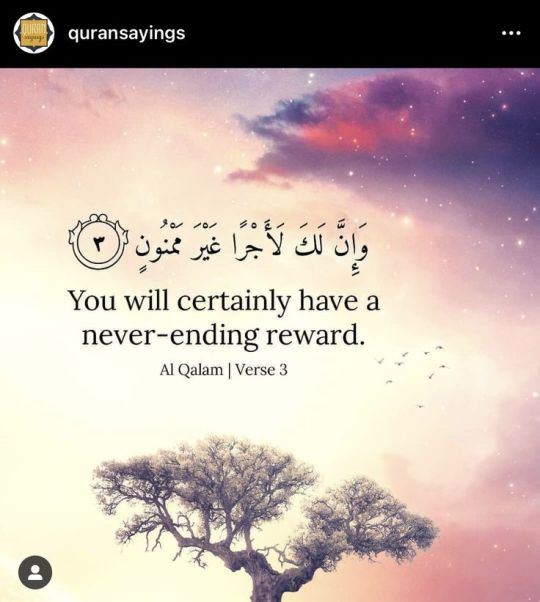
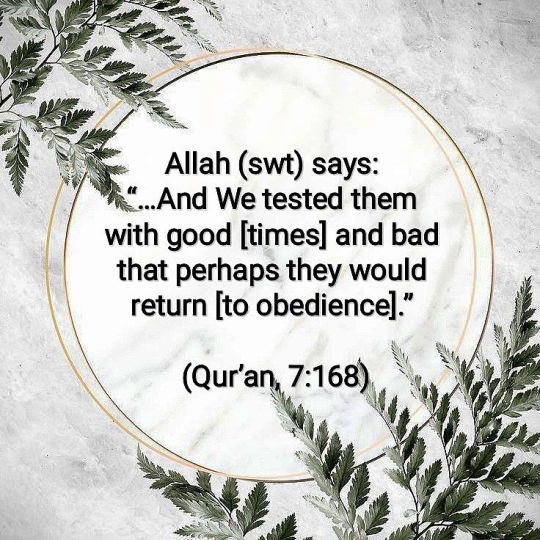
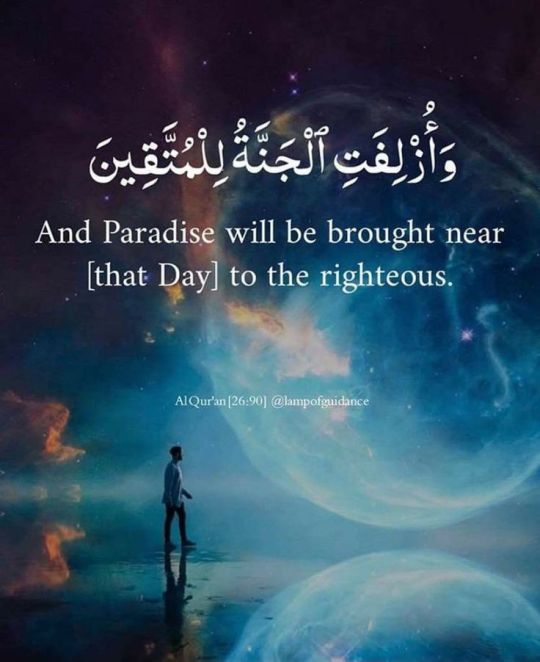
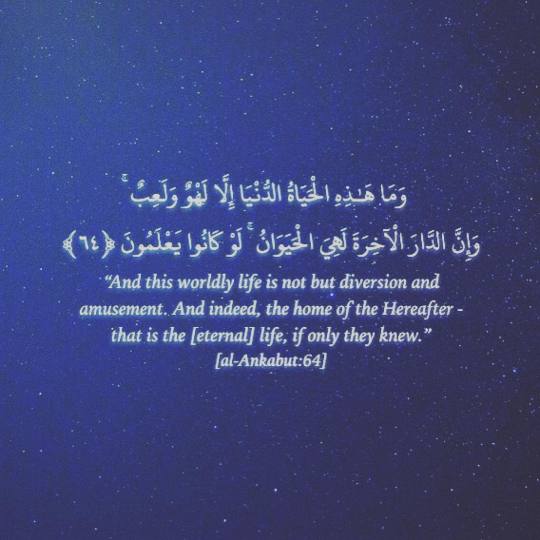
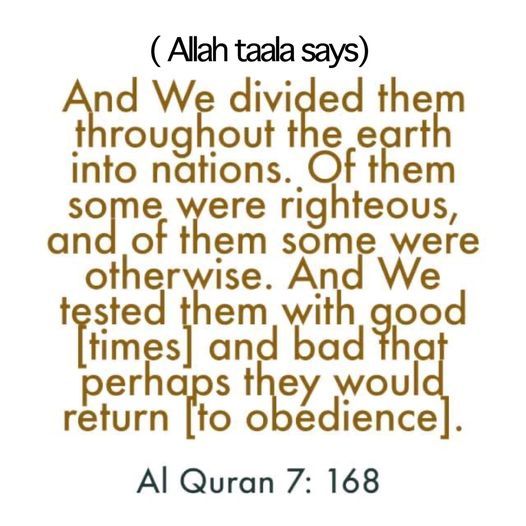
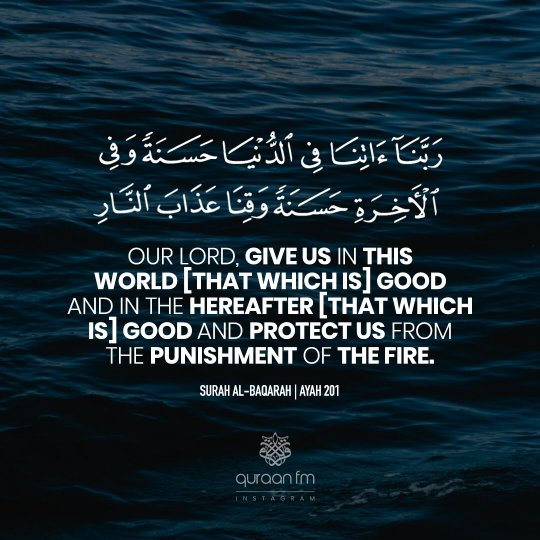
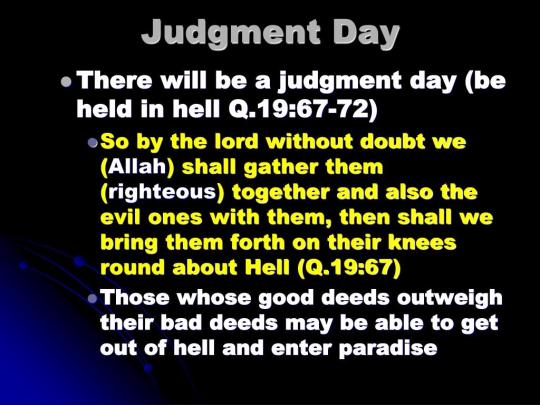
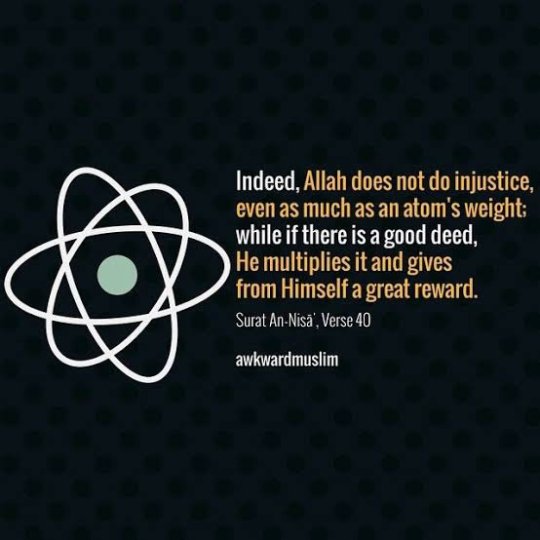



why is the belief in akhirah important
In Islamic doctrine, Al-Akhirah is necessary because the pious often suffer and unbelievers often prosper and enjoy themselves in the temporal world. To rectify that and to bring justice, Al-Akhirah with rewards of Jannah and punishment of Jahannam is necessary.
The hereafter is a form of faith
There are three basic principles of Islamic faith. Namely: Tawheed or Oneness of God, Risalat i.e. Prophets and Messengers and Akhirat i.e. Hereafter. Hereafter is the return to eternal life after death. A thorough judgment of all the actions of this life and the proper good or bad results and the enjoyment of heaven and hell as a consequence. Belief in the Hereafter is one of the five characteristics of believers. In this context, Allah Almighty says in the Holy Qur'an, "And they firmly believe in the Hereafter." (Sura-2 Baqarah, verse: 4).
Human life spans four worlds. Alame Arwaah, Alame Dunya, Alame Barzakh and Alame Akhirat.
There are many verses in the Holy Quran about the Hereafter. For example: 'And certainly the Hereafter is better or better for you than the first world. Soon your Lord will bestow upon you, so that you may be satisfied.
Hereafter is eternal, there is no death. 'Darul Akhira' is mentioned in many verses of the Holy Qur'an about the Hereafter. For example: "The Hereafter is better for the Muttakis." (Sura-7 Araf, verse: 169). (O Messenger of God) you say! O my people, do good deeds as much as you can from your position, I am also doing; Soon you will know for whom the good abode of the end.' (Sura-6 Anam, verse: 135). "Allah is calling you to the abode of peace in the Hereafter." (Sura-10 Yunus, verse: 25). Peace to you! Because you have been patient, how good is the end of the house of Paradise. 'Those who do good deeds, they will get welfare in this world, the abode of the Hereafter is better; How good is the abode of the Muttakis.' (Sura-16 Nahl, verse: 30). "Seek the abode of the Hereafter with what Allah has given you." (Surah 28:77)
Life After Death
youtube
youtube
youtube
0 notes
Text

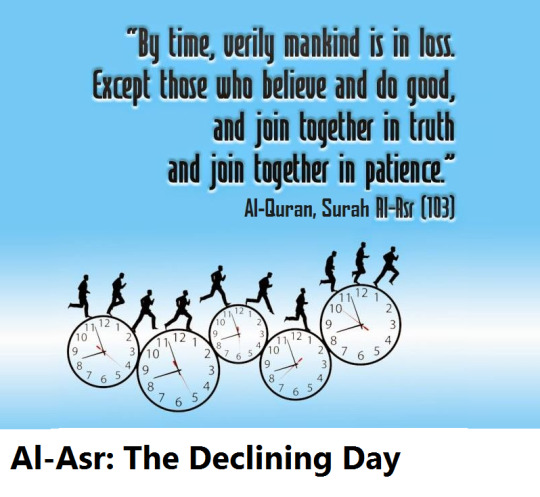

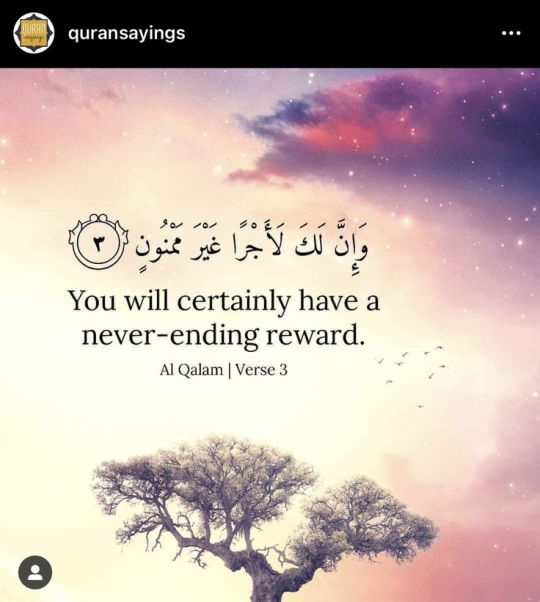
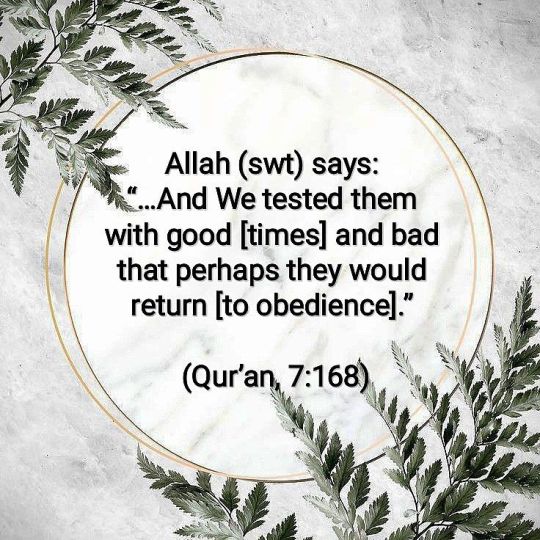
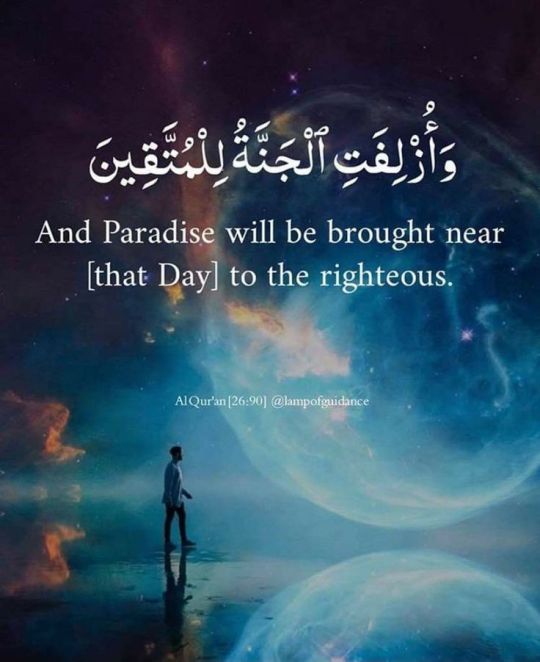
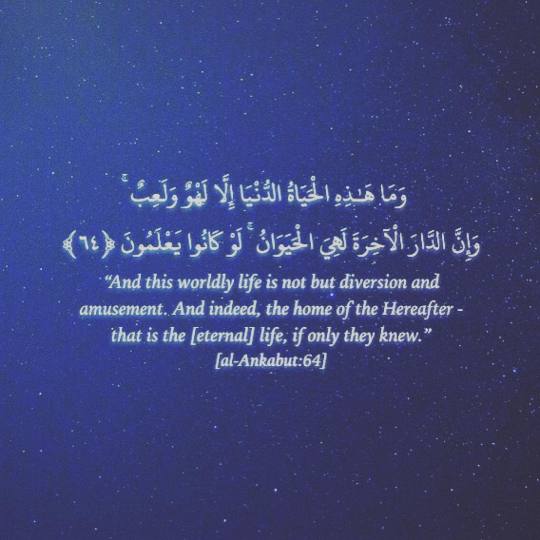
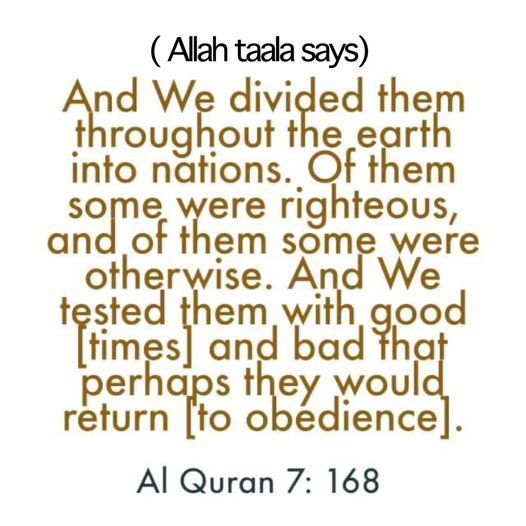
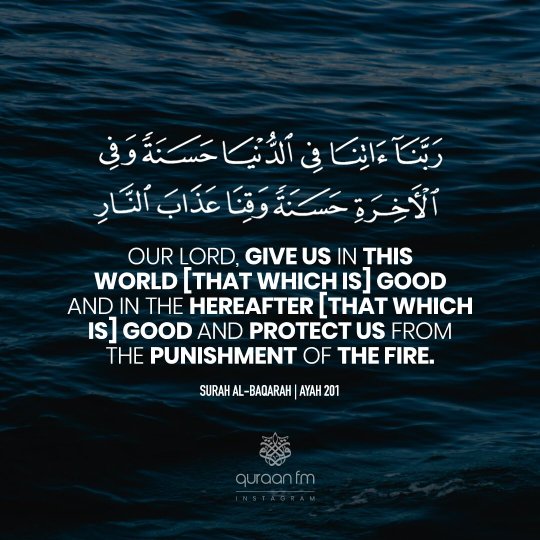
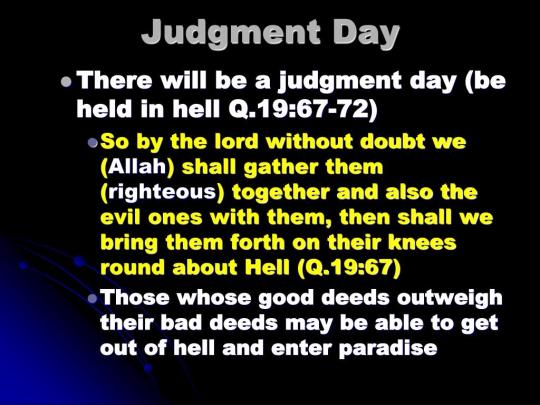
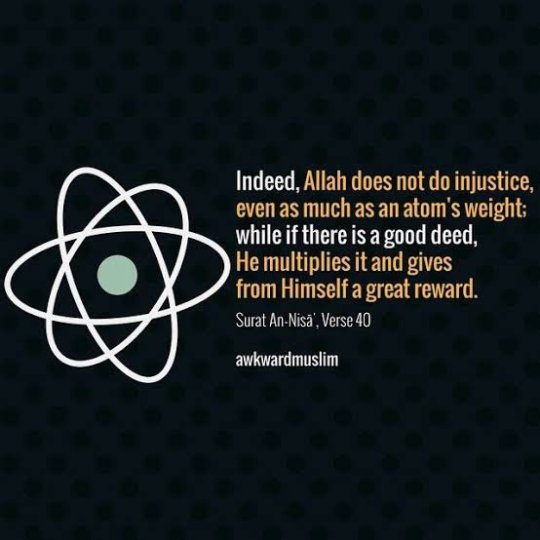



why is the belief in akhirah important
In Islamic doctrine, Al-Akhirah is necessary because the pious often suffer and unbelievers often prosper and enjoy themselves in the temporal world. To rectify that and to bring justice, Al-Akhirah with rewards of Jannah and punishment of Jahannam is necessary.
The hereafter is a form of faith
There are three basic principles of Islamic faith. Namely: Tawheed or Oneness of God, Risalat i.e. Prophets and Messengers and Akhirat i.e. Hereafter. Hereafter is the return to eternal life after death. A thorough judgment of all the actions of this life and the proper good or bad results and the enjoyment of heaven and hell as a consequence. Belief in the Hereafter is one of the five characteristics of believers. In this context, Allah Almighty says in the Holy Qur'an, "And they firmly believe in the Hereafter." (Sura-2 Baqarah, verse: 4).
Human life spans four worlds. Alame Arwaah, Alame Dunya, Alame Barzakh and Alame Akhirat.
There are many verses in the Holy Quran about the Hereafter. For example: 'And certainly the Hereafter is better or better for you than the first world. Soon your Lord will bestow upon you, so that you may be satisfied.
Hereafter is eternal, there is no death. 'Darul Akhira' is mentioned in many verses of the Holy Qur'an about the Hereafter. For example: "The Hereafter is better for the Muttakis." (Sura-7 Araf, verse: 169). (O Messenger of God) you say! O my people, do good deeds as much as you can from your position, I am also doing; Soon you will know for whom the good abode of the end.' (Sura-6 Anam, verse: 135). "Allah is calling you to the abode of peace in the Hereafter." (Sura-10 Yunus, verse: 25). Peace to you! Because you have been patient, how good is the end of the house of Paradise. 'Those who do good deeds, they will get welfare in this world, the abode of the Hereafter is better; How good is the abode of the Muttakis.' (Sura-16 Nahl, verse: 30). "Seek the abode of the Hereafter with what Allah has given you." (Surah 28:77)
Life After Death
youtube
youtube
youtube
0 notes
Text
10 lessons I learned from the first 10 days of Ramadan 🌙
(personal, subjective, and in no particular order)
1) It's a constant work and it doesn't get easier. This is the first thing that came into my mind. As a matter of fact, the daily routine of this month is no joke, whichever deeds you try to perform and incorporate in your deen from the 5 obligatory prayers, to the sunnah, to the nawafil, to the azkar, to the Qur'an recitation, to the daily x number of istighfar you promised yourself you'd achieve, it is a lot of work, especially if you have a family to take care of, a job or school to go to, or more critically, if your mental health is not at its best condition. Every day (or night), you get out of bed and you're back at square one, you have all this list of tasks to do, and it gets a lot some times, and you do feel exhausted (but if you are among the lucky ones, then it is the good kind of exhausted), and it's not like your prayers are gonna perform themselves, you have to ger up, you have to act. That's why you need to constantly remind yourself why you are doing this in the first place. What is the point of fasting and waking up in the middle of the night to pray and spending hours throughout the day just remembering Allah swt and reading his book, etc. You have to remind yourself of the ultimate purpose of this month, that we are sacrificing the worldly pleasures for the sake of Allah swt, to gain Taqwa, to be in a state of constante awareness and consciousness of Allah's presence, to get closer to Allah swt the most gracious the most merciful, and that if we don't actually put on some work and effort, we won't get to where we want to go, we won't achieve any of that. It is good to keep things in perspective. Be aware of what you are doing, where you are now, where do you wanna go and what it takes to get you there. If it's constant work and effort, then be it.
2) You can't achieve anything by yourself, your intentions are not enough, you need Allah's support. In fact, for the first couple of days I was so confused, I had to ask my sisters " If the devils are all locked away, why do I feel like I can't focus? " And I was constantly asking myself, if I have already prepared, downloaded the calendars and planners, put up a big board on my bedroom wall, etc., Why do I feel like my Iman is getting low?, AstaghfiruAllah. Aren't we supposed to feel on cloud nine? In a state of pure bliss? And then I came across a khutbah where the Sheikh may Allah swt bless him answered my question. He explained that even though Shaytan is locked away, he has already programmed us, for 11 months (he even made a joke that Shaytan deserves a month off because he has been working too hard for the rest of the year). Anyways, what I realized is even your will and your plans and your excitement about Ramadan and your promises to do so and so deeds is not enough if you don't ask Allah swt for support, for sabr, for guidance, for help, for strength to be able to fulfill those ibadat and carry out the plans you have made for this month. You need to constantly ask Allah swt because who else is our refuge? Who else is our source of strength and patience ? Who else will keep us steadfast on the straight path? And who else is gonna help us against the traps of Shaytan? No matter how willing or excited or determined you are to perform your prayers, finish reading the Qur'an, etc, you still need Allah swt to bless your deeds, every step of the way. Without Him, nothing can be achieved. So in your sujood, ask Him that He give you enough strength to finish that prayer in full Khushoo' and concentration, and after that prayer, ask him for sabr and strength to manage to perform the next one and the one after. Tell Him that you seek refuge in Him from the traps of Shaytan, from laziness and lethargy, from the disoriented heart and the distracted mind. Show Him that you are vulnerable and that even though you are trying to do this for Him, you actually can't do it without Him. SubhanAllah.
3) Forgive yourself when you fall short.
{يُرِيدُ اللَّهُ بِكُمُ الْيُسْرَ وَلَا يُرِيدُ بِكُمُ الْعُسْرَ}
{God intends for you ease and does not want hardship for you}
Allah swt literally said this in Surat Al Baqara (The Cow) when he prescribed Fasting upon us and introduced us to the holy month of Ramadan. Soz read it again. As simple as that, I am not gonna develop this idea further.
4) No matter how much you prepared before Ramadan came, you aren't prepared enough. Well, are you familiar with the saying that Ramadan is like a marathon and you have to prepare for it way before? That's actually true. And guess what? No matter how much you think you are prepared, there are still gonna be some moments when you'd still feel out of breath, where you wish you'd have prepared more. May Allah swt make us reach the end of this month smoothly and seamlessly. May Allah swt bless us and accept our deeds from beginning to end.
5) Our deeds don't get accepted because they're good enough, they get accepted because Allah is merciful. I heard this in a youtube khutba just last night and it resonated with me. Put this in your mind, learn it by heart, print it out on your forehead if necessary! No matter how perfect you think your deeds are, they won't get accepted because you're an amazing slave of Allah swt and you win at worship and ibadah. Don't get too confident, beware of arrogance, control your ego. Stay humble and know your place. The only reason why your deeds would be accepted is because Allah swt will have mercy on you, not because you are so good that your deeds would qualify you for forgiveness and acceptance. So pray that Allah swt accepts our deeds and pray that he encompasses us with His mercy.
6) Don't compare to others, don't get intimidated by others, we are not on the same journey. Walk your own rocky path. I can't stress this enough. I know a lot of brothers and sisters Mashaa'Allah, Allahuma barik, are overachievers, or they might just be out of our league. And sometimes, through social media, we see what they share (in their attempt to motivate us and share some tips and good deeds, spread the knowledge, May Allah swt bless them, accept their deeds and reward them), so we get intimidated. Sometimes it feels like what we are doing is not good enough because it doesn't even compare to what X or Y are doing. And we feel a bit scared that we are not good enough of slaves for Allah swt or that Allah swt wouldn't be pleased with us like He swt would be pleased with them, and we can even feel unworthy and get discouraged ( beware it's a shaytan trap). It is simple though, your path to Allah swt is very personal. What a brother or a sister does only get to inspire you not discourage you or intimidate you. When you see someone sharing something good or beneficial, make duaa for them and make duaa for yourself then leave it at that. Competition is taking over every aspect of our worldly life, we shouldn't let it mess with this sacred part as well. And remember, we are not all on the same journey to Allah swt. It is okay if you can't recite the Qur'an in such a beautiful way or if you can't pray 10 rakaas of Taraweeh, it is okay if you can't read in Arabic or if you don't learn any hadith by heart. Allah swt is patient enough and considerate enough. Scratch that, He swt is the most patient, the most considerate, the most gracious, the most generous, and He appreciates your effort. What matters for Him is your sincerity and the purity of your intentions.
7) The less food you take, the more energy you will have. FACTS. I mean, imagine the struggle of having to pray Ishaa and Taraweeh on a full stomach where every time you get down for sujood you feel like your soup is coming up :/ Allahu almusta'aan. This month is not about feasting. It is literally about giving up pleasures (food being one of them) to focus on Allah. So, Focus on what's important and set your priorities straight.
8) Don't overdue it. Beware of the ghost of Burnout. So yeah, like I already said earlier, it is a lot of work and it requires preparation and constant effort. The aim is to be at our best shape of health and Iman on the last 10 nights because they are the most sacred, the most important, the most blessed. You might wanna consider starting small with your deeds and building up slowly. Allah's Messenger (ﷺ) said, "Do good deeds properly, sincerely and moderately and know that your deeds will not make you enter Paradise, and that the most beloved deed to Allah is the most regular and constant even if it were little." [Al Bukhari]
9) Personalize your ibadat / plans. In other words, do what's best for you and what's beneficial for you. Define your weaknesses and the areas in which you want to improve. Don't just do this or that deed because everyone else is doing them. Do not follow blindly. What is good for you might not be the thing recommended or done by the others. And what you need on your faith journey is not what X or Y needs. You will be judged on your own deeds, your own journey. Have a purpose and a reason for what you are doing and why you are doing that. Also, the more you feel like your plan or your routine is personal, the more you can relate to it and connect with it, the more sincere you will be, the more excited and enthousiastic you will be, and the easier it will be for you to perform your ibadat in Shaa Allah.
10) Too much information can be poisonous. If ,like me, you got into a habit of watching lectures and videos of speakers this Ramadan, then breaking news: it might get confusing. I don't want you to feel lost and confused. Allahima barik the resources are countless and limitless. But also, you have to beware whom you listen to. There are different sects, different perspectives, different rulings on certain things. So, try not take things blindly. Take them with a pinch of salt and always try to do a background check. And eventually, when it gets too much, always choose what's best for your heart, because we are created with an innate sense of "right" , our fitrah is sane, Alhamdulillah. So, try to be critical. Allah swt even recommends that.
I hope this post can be beneficial. Tell me which part you related to the most, and if you have any extra tips, please share. May Allah swt accept our deeds and grant us forgiveness, amen. 🤍
#ramadan thoughts#tips#ramadan experience#islam#رمضان١٤٤٢#شهر رمضان#رمضانيات#sabr#muslims on tumblr#muslims#Allah
172 notes
·
View notes
Conversation
RP meme from the Baali Clanbook V2 in "Vampire the Masquerade" Part 2 of 2
"Look at the world around you. No, truly look. Do you see it? The entropy slowly eating away at the fabric of existence? The world is dying."
"Existence has always teetered on the brink in some way or another."
"From the coming of prophets and gods to the turn of the millennium. Mankind has always found some way to turn the metamorphosis of life into an “end of days” scenario."
"It's not hyperbole."
"All things must come to an end. Even our universe."
"We can either fear this new existence or we can embrace it. I know which I choose. What will your decision be?"
"I find humanity both fascinating and boring."
"I find humanity both fascinating and boring. They are creatures who have risen above their state as pure beasts in the wild. They have domesticated the world, bringing it to heel under the boot of technology and enterprise. They have tamed the lightning and created weapons of such incredible potency that they could end the entire world with the push of a few buttons. But, at the same time, they cannot even control their own impulses."
"I do love seeing the hope in a victim’s eyes slowly die."
"We need to talk about vampires."
"They are all in their positions due to back-alley deals, dirty deeds, and betrayals that they fear will one day topple them."
"They are afraid. Afraid of losing power."
"Power is a cruel master."
"Do not put yourself out there in a manner that draws unwanted attention."
"Those who are worthy of your knowledge should seek you out, not the other way around."
"Use what you know to twist their desires to your own ends."
"Utilize every secret desire and urging until your “clients” are nothing more than puppets on your strings."
"Above all, however, don’t forget to clean when guests come to call. It’s embarrassing to have a bloody carpet."
"Arrogance will be the gap in their armor that you can exploit."
"They wounded ego and regret."
"That’s a level of fucked up I can’t wrap my head around."
"So easy to guide around by their rage."
"Get over it already."
"They’re not corruptors unless you want to be corrupted."
"It’s bargain basement degradation at best."
"All good rites have some semblance of pageantry to help build up psychic energy for ritual release, sure. But when you perform the rite more for the pageantry than sacrifice or offerings? You’ve missed the point."
"The beautiful ones have this fucked up perception that they are icons of style, grace, and tact."
"The punks think of themselves as whirlwinds of creative destruction."
"After all, I want to see the world break out of this nascent shell of physicality and witness the birth of a new universe."
"So, I can get behind wanting to push past pain and physical limitations."
"These. . .things will not think twice about skinning you alive and making you part of the furniture. And honestly. . .I can respect that."
"These fucking guys."
"There comes a time in everyone’s life when they look at the world around them and wonder; “Is this it? Is this everything that there is?”
"Life, if we are honest, is nothing but a series of disappointments."
"My youth was spent chasing some phantom of purpose. Some reason for us being here, for going on, day after day, living."
"My desperate pleas were met with unyielding silence."
"We all wander through the world, clinging to half-promises of something greater."
"We will find the bliss of enlightenment only after the trials of our world."
"Why was everything we did destined to age and rot?"
"There was no blissful release. There was no epiphany of understanding. No moment of realizing my place in the universe."
"We are, each of us, insignificant."
"We don’t get rich off hard work. Luck and heritage define who rises to the top."
"We don’t find enlightenment as we grow older, we only find bitterness and fear of encroaching death."
"We race to accomplish something. . .anything, that will live on after our deaths."
"I thought sensation would provoke deeper understanding. It does not. It only burns bright, then fades quickly, leaving a person yearning for the next instance of fleeting bliss."
"There is nothing. No great reward awaiting the dying. There is no great paradise for the enlightened. There are fading memories of life and the swirling maelstrom of oblivion."
"Why would anyone want to deny themselves anything knowing that, in the end, they are only fit for utter destruction and darkness?"
"Take every moment of disappointment in your life. Every hardship. Every heartbreak. And then realize that none of it matters in any form in the end."
"Fuck the universe."
"Fuck every lie and every false promise of salvation or of some “great reward” that never comes."
"Enlightenment is a trap."
"Fuck every self-styled guru that peddles street corner bliss and a side of eternal understanding."
"This universe is a fucked -up failure."
"This universe is a fucked -up failure. An experiment with no principal investigator at the helm. Let’s scrap it and start something new. Something where we can make our own purpose."
"It is the only choice we have —to grasp our destinies and forge something new out of the corpse of the old."
"The end is coming and there is no stopping it. But. . .we can accelerate it. We can end this torturous existence and craft something new and meaningful from its remains."
"We are not destroyers, nor are we heralds of destruction. We are idealists seeking to bring purpose to existence. We are scholars burdened with the horrible truth that this universe must burn so that something new and pure can take its place."
"Evil. I hate the word."
"To the point, however, the word “evil” is such a catch-all that is, at its core, quite meaningless."
"We are the midwives of eternity, here to see to the proper birth of what is to come."
"Evil may be a word that can fit us, but to the darkness, isn’t the invasive nature of light evil?"
"I do what I do out of simple necessity."
"“Good” and “evil” are terms for children."
"They are just as “evil” as we. They simply lie to themselves about it."
"I think the truth lies between these tales."
"While the stain of grievous sins can color the auras of most, yours, for some reason, remains pure and innocent."
"You may not realize it, but your very essence sings with dark power."
"You understand the state of the world. You understand how it hangs so precariously between collapse and a great rebirth in darkness."
"In these dark, twisting visions, the future is revealed in flashes of blood-soaked fate."
"They will still be a missing person and be mourned, but they will be, effectively, simply considered another statistic and efforts to seek out justice for them will fade."
"While friends and family still remember the individual and their name, any efforts to seek out justice for them or to search for them cease after the ritual is performed."
"By sharing the affections of your damned patron, you can grant infernal powers to others."
"The allure of evil can draw in the curious like a moth to a flame."
"What is your most shameful secret?"
"What do you desire the most?"
"Whom do you secretly despise?"
"The most valuable advice, then, would be to act subtle. Be calm. Act comfortable."
"Akkadian script is simple, but apparently too difficult for you to count in."
"The quest for the next horizon has always haunted your mind."
"No matter what you were doing, no matter where you were at. . .there was always the allure of the unknown calling out to you."
"The allure of history and understanding what came before was simply too great to ignore."
"You were ravenous for knowledge."
"By the end of the week, you were no longer alive."
"Cultures died out across the world. Why?"
"The great puzzle of the universe lays before you. "
"The ancients knew secrets that would sear the minds of today’s scholars."
"The old gods are my strength. They are my shield."
"Mankind has forgotten where its oldest, bloodiest rites came from."
"Your traditions were handed down to you by your parents, and to them by their parents."
"Old deities that were converted into demons and devils by Abrahamic religions were once sources of inspiration to the world."
"While you have dabbled in mainstream paganism, practitioners these days ring hollow to you."
"Their worship more out of desperation than any true passion."
"It wasn’t for you."
"You caught the attention of something in the dark."
"There is a strength in the old ways that it seems many have forgotten."
"What you are doing is not evil. It is necessary."
"Do stop squirming. It ruins the effect."
"Something was always broken inside of you. "
"Your questions cut through the niceties of social decorum."
"You weren’t ignorant of the suffering you caused. You just didn’t care."
"They love their work and the pain it inflicts."
"You? You honestly adore the look of terror ."
"After all, what is the point of your work if you do not enjoy it from time to time?"
"You know the best ways to draw out the psychic energy for a proper sacrifice."
"They will come. Have no doubt of that."
"You simply didn’t understand the need for religion."
"You were out of place."
"There is a calmness that comes from knowing the end is inevitable."
"You are existing on the precipice of a new universe and you know this."
"Your faith sustains you."
"Aren’t you a beautiful soul?"
"It was an easy lie."
"You have been an apt pupil."
"I am here to do the Devil’s work."
"Life hasn’t always sucked."
"Being homeless creates a new kind of resentment."
"People walk by, either with contempt or pity in their eyes for you. Both are an insult."
"In your anger, you lashed out, you reached for something new that could explain all the inconsistencies in the world."
"Beings from beyond time? The hell does that even mean?"
"You are the devil’s own."
"Satan was a model of freedom from tyranny."
"Your soul is foul and beyond redemption."
"Power belongs to those who are daring enough to wield it."
"You became the popular one, the one in demand, who’s very expression could elevate someone or dash their hopes."
"So, you arranged the death of your beneficiary and inherited their wealth."
"They admired the grace and style with which you brought your targets to heel and slowly destroyed them."
"It only took a week to catch your eye."
"The world may be destined to die a slow, agonizing death, but that doesn’t mean you can’t have your fun wherever you can find it."
"Who are you to judge?"
"You are only as good as your last rumor."
"It’s the thrill of the hunt that drives you and exhilarates you."
"You don’t understand. I know what breathes in the dark. I’m trying to keep it asleep."
"You were always looking for a place to fit in."
"The desire to fit in is always powerful. It can guide our actions and even our thoughts. It can shift our perspective, causing a realignment of our core values."
"Once you found some semblance of purpose you could identify with—and one that made you out to be a hero fighting back darkness, you embraced it wholeheartedly."
"You will keep doing what you know you must do."
"If they only knew that you were working to protect all of them. . .maybe they would be more grateful."
"You have a subtle contempt for modern society."
"You understand the desires that drive people to extremes. . .and you have no qualms about twisting those needs and urges to your ends."
"Everyone you meet is a tool to be used, a potential sacrifice, or a threat to be neutralized."
"You dress to impress—always in the most stylish manners according to what is in fashion."
"Use every environmental factor to your benefit when possible."
"Make good entrances and silent exits."
"You are a cutthroat negotiator when you need to be but know that sometimes the appearance of defeat can serve you better than a clear victory."
#rp meme#rp memes#rp starters#roleplay starters#roleplay meme#roleplay memes#vampire the masquerade#worldbuilding#owod#vtm#baali
22 notes
·
View notes
Text
TAFAKKUR: Part 341
COMMON GROUND BETWEEN ISLAM AND CHRISTIANITY: Part 1
For many, Islam and Christianity have little in common. More than a few Christians misperceive Islam as a religion of the sword and of oppression, while many Muslims see Christianity as permissive and rampant with sin. Yet, much of this misperception arises from the different emphases and vocabulary peculiar to each religion. In fact, most of their practices and beliefs are quite similar, as they should be, since they came from prophets of Allah (God). By reading key concepts in the Bible, the Qur'an, and hadiths (traditions of the Prophet), we can see their common points.
FAITH AND WORKS
To receive the favor of Allah, faith and works are crucial. The Prophet Muhammad stated that faith is required to enter Paradise (Muslim 1:96), and the Apostle Paul wrote that, "the righteous will live by faith" (Romans 1:17). In both religions faith goes hand in hand with good deeds and requires them to perfect it (Qur'an 2:177; James 2:22). Indeed, Jesus says that only those who do God's will can enter heaven (Matthew 7:21).
LOVE
Just as faith without works is dead (James 2:17), so, too, is it dead without love.
LOVE OF ONE'S NEIGHBOR
Muhammad affirmed: "You will not believe as long as you do not love one another" (Muslim 1: 96) and "No man is a true believer unless he wants for his brother that which he wants for himself" (Bukhari 1:12). Concurring, Jesus said that to love your neighbor as yourself was like loving God (Matthew 23:37-39).
Although the word "love" appears less frequently in the Qur'an than in the Bible, the notion of love permeates it. True love consists of right action towards one's neighbor, of taking care of others, of and helping those in need. In verse after verse, the Qur'an enjoins believers to be charitable to orphans, widows, travelers, and the poor. According to one hadith: "The best Islam is that you feed the hungry and spread peace among people you know and those you do not know." Similarly, Jesus tied Peter's loving him to taking care of his disciples (John 21:15-17), and John asserts that those who do not help a brother in need when they are able to do so do not have the love of God in them (1 John 3:17).
LOVE OF GOD
Love of neighbors is a cornerstone of both Islam and Christianity, but love of God is the foundation. Such love is expressed in many ways, but let's look at four: prayer, repentance, contentment, and surrender to God.
People desire to be with and talk with those they love. Thus, Christians and Muslims who love God "pray continually" (1 Thessalonians 5:17) and "remember Allah much" (Qur'an 33:21). Prayer is a cleansing activity, partially because engaging in it allows people to see God's greatness and their own unworthiness. Such understanding brings repentance, which is essential to receiving God's approval and forgiveness (Qur'an 20:82; Muslim 2:1142; Matthew 4:17; Mark 1:15; Luke 5:32; 15:7).
Through cycles of prayer, repentance, and forgiveness, the believers' love of God grows. This gradually results in a weakening of the desires for worldly things, the cause of discontent. Becoming content with what God has allotted them, they "give thanks in all circumstances" (1 Thessalonians 5:16-18), whether good or bad. Such believers are loved by people and by God, as one hadith says: "Desire not the world, and God will love you; and desire not what men have, and they will love you."
To be fully content means to be surrendered to Allah, a key concept in Islam. Indeed, the word "Islam" is understood to mean surrender, as it says in the Qur'an (3:19): "The religion before Allah is Islam." Christianity believes the same, for as Jesus said, the greatest commandment is to "Love the Lord your God with all your heart and with all your soul and with all your mind" (Matthew 22:37). In other words, give your entire being to God.
Those who completely devote themselves to God are, naturally, are the closest to Him. Yet God is near all believers. Christians believe that God, in the form of the Holy Spirit, lives within them (1 Corinthians 6:19). For Islam, the indwelling concept is not prevalent, but God is nearer to the believer than his jugular veins (Qur'an 50:16) and says: "When my servants ask you about me, tell them I am near, I hear the prayer of the one who calls upon Me" (Qur'an 2:186).
PARADISE
Both Christianity and Islam teach that those who love God, believe in God, and do good deeds will receive rewards (Matthew 5:5-11, 6:1-6 10:41-42, 16:27, 1 Corinthians 3:14, 9:17, Ephesians 6:8, Qur'an 2:62, 3:144,145,148). The best reward, of course, is eternal life in Paradise.
Who gets this reward? In both religions, the answer is quite controversial. There are those who say that only adherents to of their own religion-whether Christianity or Islam-go to Heaven. Many Christians confidently assert that only those who believe in Jesus will have eternal life (John 3:18, 11:25-26), and many Muslims affirm just as strongly affirm that only those who believe in Allah and accept Muhammad as His Messenger will enter Paradise.
In both religions, however, others disagree. Some Christians claim that it is necessary only that one has to believe in God and try to do good (Matthew 7:21, 10:42, 25:31-46). Likewise, some Muslims who agree with this view cite the Qur'an (2:62): "Believers, Jews, Sabaeans, or Christians-whoever believes in God and the Last Day and does what is right-shall have nothing to fear or to regret."
Adherents to both religions concur, though, that eternal life is a gift of God and based completely upon His mercy (Romans 9:15-16, Qur'an 3:74, 10:99-100; Bukhari 7:577). Nevertheless, God does not reject anyone who comes to Him: "Draw near to God and He will draw near to you" (James 4:8), and "He who loves to meet Allah, Allah also loves to meet him. . ." (Muslim 2:1120).
#allah#god#prophet#muhammad#quran#ayah#islam#muslim#muslimah#hijab#help#revert#convert#dua#salah#pray#prayer#hadith#sunnah#welcome to islam#how to convert to islam#new muslim#new convert#new revert#revert help#convert help#islam help#muslim help#religion#reminder
5 notes
·
View notes
Text
That Time is Here
By Dennis Huebshman Published on: August 21, 2021
From 2 Timothy 4:3-4; “For the time is coming when people will not endure sound teaching, but having itching ears, they will accumulate teachers to suit their own passions, and will turn away from listening to the truth and wander off into myths.” (all emphasis mine)
“Religion” is thriving, and some mega-churches are filled to capacity during regular “services.” The biggest issue is that true Bible teaching is getting hard to find. For some of these churches, the Sunday after the Rapture will not see any change in attendance. They’ll still be putting on light shows, have heart-thumping music, and be giving “ear-tickling” messages for those itching ears. However, Jesus will be conveniently left out. The newer generation doesn’t want to be told they are sinners in need of a Savior but that their earthly lifestyle is just fine.
The one to three hours a week “Christians” are content to be present and support their organized evangelical churches; just don’t expect anything else the rest of the week. Besides, all religions worship the same god, and Jesus was a good person, but not really necessary for us to go to heaven – right? The need here is to read John 14:6.
While true believers’ numbers are declining in America, the places that are seeing increases are in countries that persecute and martyr Christians. Iran, China, North Korea, parts of Africa and other Middle East nations are a few that seek out anyone who calls on Jesus to be their Savior. There have been reports of people being given a chance to renounce Jesus and turn back to the religion of that area, yet many choose death rather than change.
Several countries around the world today are making it a crime for anyone to speak out against lifestyles that God calls abominations. Canada is one of these countries where there are pastors and educators facing prison for calling the “alphabet” lifestyles sinful. Cases of arrests are also being reported in Europe and Scandinavia, and America is just a breath away from this same action.
Luke 21:16:17; “You will be delivered up, even by parents and brothers and relatives and friends, and some of you they will put to death. You will be hated by all for My name’s sake.”
Matthew 24:10-13; “And then many will fall away and betray one another, and hate one another. And many false prophets will arise and lead many astray. And because lawlessness will be increased, the love of many will grow cold. But the one who endures to the end will be saved.”
Next, Paul’s prophecy about the end of this age in 2 Timothy 3:1-5: “But understand this, that in the last days will come times of difficulty. For people will be lovers of self, lovers of money, proud arrogant, abusive, disobedient to their parents, ungrateful, unholy, heartless, unappeasable, slanderous, without self-control, brutal, not loving good, treacherous, reckless, swollen with conceit, lovers of pleasure rather than lovers of God, having the appearance of godliness, but denying its power. Avoid such people.”
The last line is good advice, but how is one to avoid such people when they are all around and growing daily in number?
In 2 Peter 2:1-3, “But false prophets also arose among the people, just as there will be false teachers among you, who will secretly bring in destructive heresies, even denying the Master who bought them, bringing upon themselves swift destruction. And many will follow their sensuality, and because of them, the way of truth will be blasphemed. And in their greed, they will exploit you with their false words. Their condemnation from long ago is not idle, and their destruction is not asleep.”
Going to 1 John 2:15-17, “Do not love the world. If anyone loves the world, the love of the Father is not in him. For all that is in the world – the desires of the flesh and the desires of the eyes and the pride of life – is not from the Father, but is from the world. And the world is passing away along with its desires; but whoever does the will of God abides forever.”
Continuing to 1 John 2:18-19, “Children, it is the last hour, and as you have heard that the antichrist is coming, so now many antichrists have come. Therefore, we know that it is the last hour. They went out from us, but they were not of us; for if they had been of us, they would have continued with us. But they went out that it might become plain they all are not of us.”
The antichrists and false prophets that have been around since the time of John’s writings are not the ultimate evil ones of Daniel and Revelation. All that have come, and all that are here now, are a prelude to the era of the 7-year Wrath/Tribulation.
The ultimate antichrist and false prophet most likely are alive today. They may or may not know the role that they are about to play, but they are in Satan’s grip. However, 2 Thessalonians 2:6-7 explains why the beast hasn’t come forth yet. “And you know what is restraining him now, so that he may be revealed in his time. For the mystery of lawlessness is already at work. Only He who now restrains it will do so until He is out of the way.”
All true believers are indwelt by the Holy Spirit. For the antichrist to appear, that influence will be removed; and in doing so, the Rapture has to occur first to keep God’s promise to keep us from that coming wrath (1 Thessalonians 1:10; 1 Thessalonians 5:9-10; Revelation 3:10).
Anyone who truly focuses on the world today should be able to see that all the signs are here right now. There have always been evil people and unspeakable, horrible deeds that have been done, but the sheer magnitude today of satanic activity is overwhelming.
Our government, along with the liberal faux news media, are “programming” people to follow whatever they say without question, and sadly, they are gaining a majority of followers. The new world order is rapidly coming together, and eventually, there will be a one-world government just as God said there would be. Prior to this, there will be a coalition that will attack Israel (Ezekiel 38), believing that they will be able to plunder the wealth which that small nation has.
Jesus said there would be wars and rumors of wars near the end of the age. We are seeing a lot of “saber-rattling” from the coalition of Russia, Iran and Turkey that formed just within the last decade. Ezekiel 38:4 states that God will “put hooks into your jaws” and convince them to attack Israel. The “hook” would be the massive gas and oil deposits that Israel has, as all three members of the coalition are financially strapped.
Nothing that is taking place today surprises our Heavenly Father. All prophecy leading up to these times has been fulfilled with 100% accuracy. Why would anyone think this would be any different?
Knowing what the Bible says about end-time events, one might think this would be warning enough to possibly change the outcome. However, 1 Corinthians 1:18 says, “For the word of the Cross is folly to those who are perishing, but to us who are being saved, it is the power of God.”
Also, 2 Thessalonians 2:11, “Therefore, God sends them a strong delusion, so that they may believe what is false.” I believe that delusion has already started.
The best scenario of all this is Luke 21:28, where Jesus tells us to look up when all this starts to take place because our redemption is near. All who have truly received and accepted Jesus as their Savior will not be here for the worst 7-year period of time this world has ever seen.
The mechanics (ABCs) of redemption are found in Romans 10:9-13, which ends by saying that “All who call on the name of the Lord will be saved.” God will force no one to accept His Son, but He will not turn anyone away who truly calls on Jesus. The event known as the Rapture could take place at any moment of any day now.
No one has sinned so greatly that they cannot be forgiven. The absolute unforgivable sin is to take your last breath on this earth without having Jesus as your Savior. All He asks is that you acknowledge you have sinned and ask His forgiveness; He has already paid in full the price God requires – a pure, sinless blood sacrifice. Then, have the faith that God raised Him from the dead to conquer sin and death for us. When you call on Him, the Holy Spirit will come and reside in you until you are with Jesus, either by death or by Rapture.
Call on Him today, right now, and you will be assured of an eternal home with Him in paradise. It will be the best decision you will have ever made.
Maranatha – Come, Lord Jesus!
2 notes
·
View notes
Text

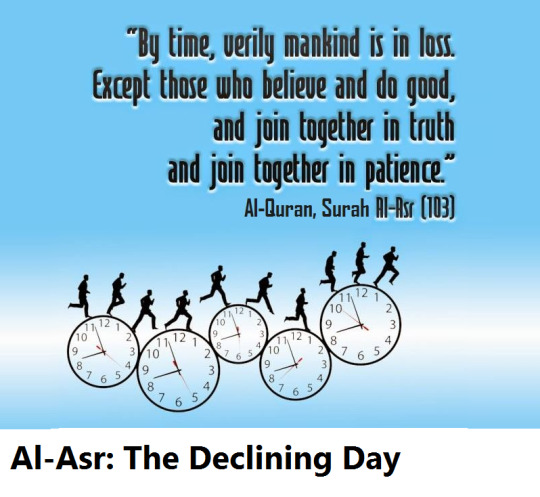

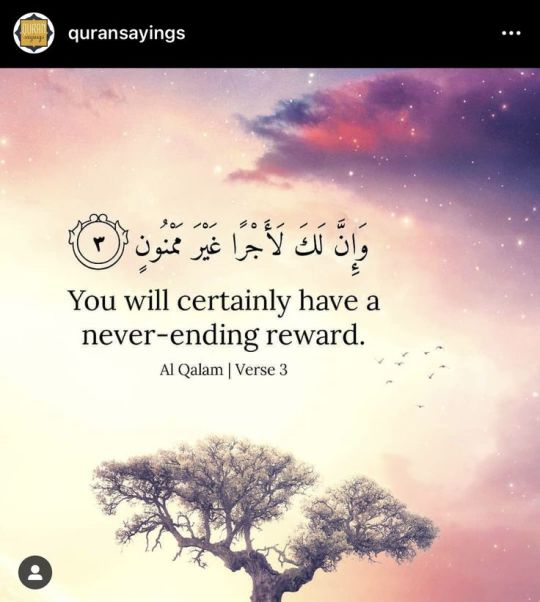
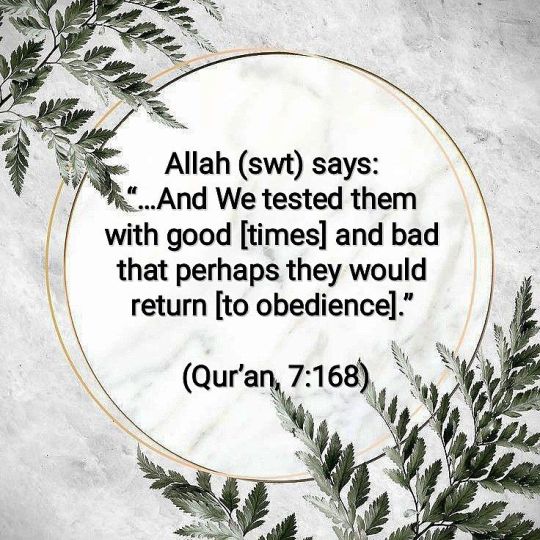
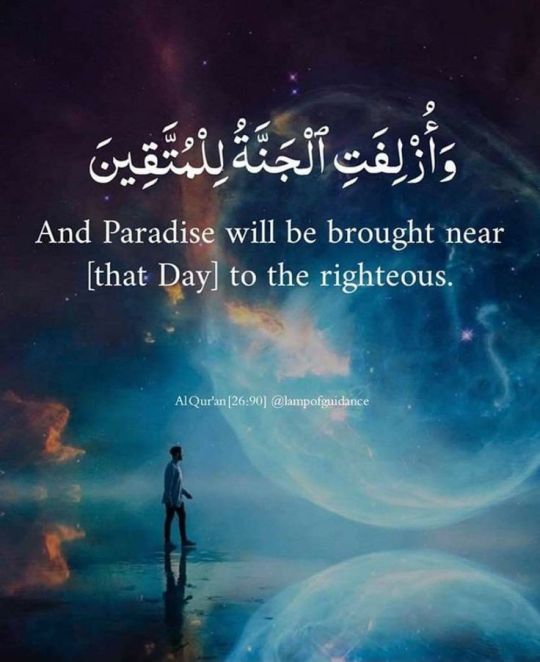
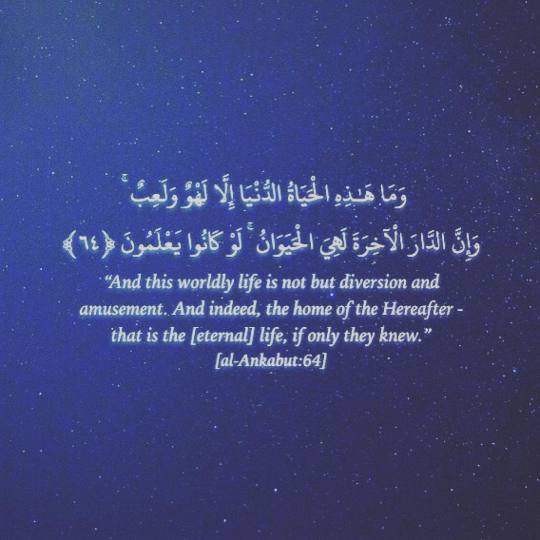
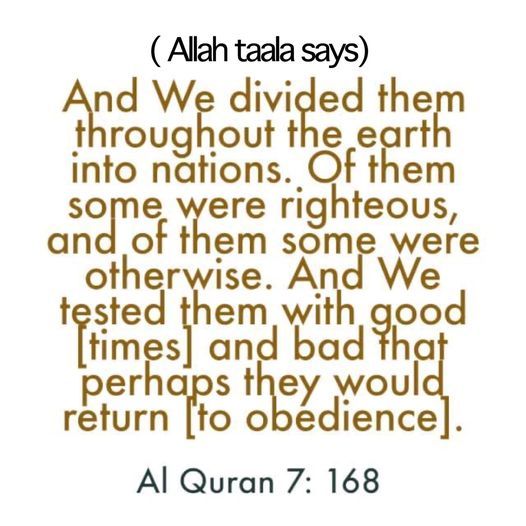
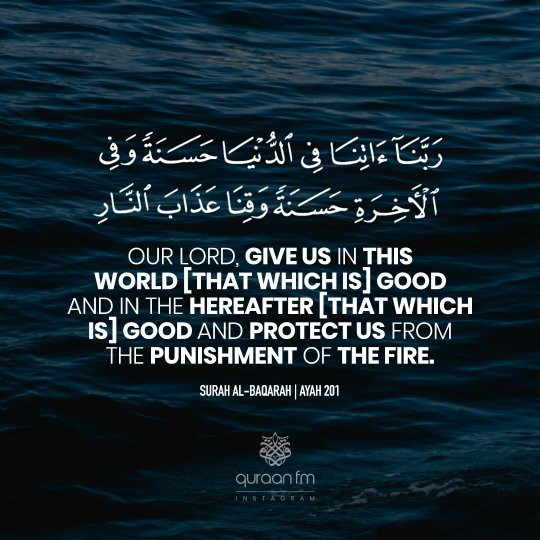
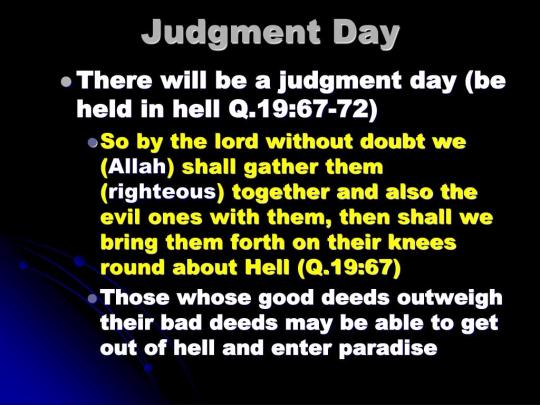
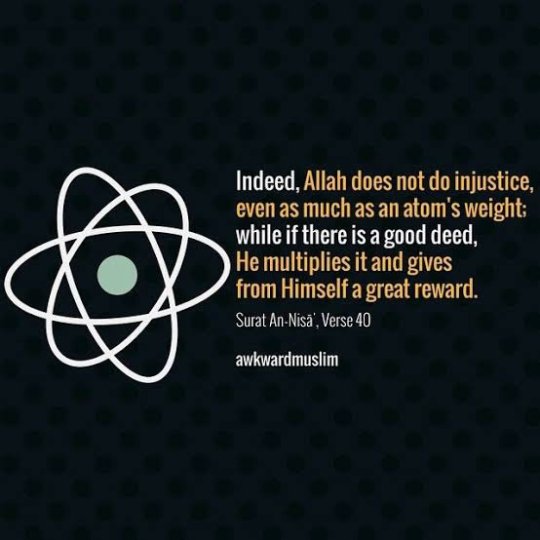



why is the belief in akhirah important
In Islamic doctrine, Al-Akhirah is necessary because the pious often suffer and unbelievers often prosper and enjoy themselves in the temporal world. To rectify that and to bring justice, Al-Akhirah with rewards of Jannah and punishment of Jahannam is necessary.
The hereafter is a form of faith
There are three basic principles of Islamic faith. Namely: Tawheed or Oneness of God, Risalat i.e. Prophets and Messengers and Akhirat i.e. Hereafter. Hereafter is the return to eternal life after death. A thorough judgment of all the actions of this life and the proper good or bad results and the enjoyment of heaven and hell as a consequence. Belief in the Hereafter is one of the five characteristics of believers. In this context, Allah Almighty says in the Holy Qur'an, "And they firmly believe in the Hereafter." (Sura-2 Baqarah, verse: 4).
Human life spans four worlds. Alame Arwaah, Alame Dunya, Alame Barzakh and Alame Akhirat.
There are many verses in the Holy Quran about the Hereafter. For example: 'And certainly the Hereafter is better or better for you than the first world. Soon your Lord will bestow upon you, so that you may be satisfied.
Hereafter is eternal, there is no death. 'Darul Akhira' is mentioned in many verses of the Holy Qur'an about the Hereafter. For example: "The Hereafter is better for the Muttakis." (Sura-7 Araf, verse: 169). (O Messenger of God) you say! O my people, do good deeds as much as you can from your position, I am also doing; Soon you will know for whom the good abode of the end.' (Sura-6 Anam, verse: 135). "Allah is calling you to the abode of peace in the Hereafter." (Sura-10 Yunus, verse: 25). Peace to you! Because you have been patient, how good is the end of the house of Paradise. 'Those who do good deeds, they will get welfare in this world, the abode of the Hereafter is better; How good is the abode of the Muttakis.' (Sura-16 Nahl, verse: 30). "Seek the abode of the Hereafter with what Allah has given you." (Surah 28:77)
Life After Death
youtube
youtube
youtube
0 notes
Text
ISLAM 101: Muslim Culture and Character: Reflections (Tafakkur): Part 3
BEAUTY AND THE BEAUTIFUL
Beauty elevates our hearts, awakens our souls with sweet excitement and appreciation, and then becomes the esthetic of our inner self. This hard-to-describe phenomenon, this sense that is present in our most joyous moments, is beauty. Even though this definition might seem too narrow, it is one interpretation. There have been elaborate interpretations of the notion of beauty from the point of view of esthetics. The focus now shifts on the relation of beauty with existence, nature, and human beings, or even beyond nature.
The meanings of beauty need to be redefined all together in order to be properly appreciated. Even though this has been done many times by masters of esthetics, we will try to explain our understanding of beauty in the context of our philosophy and belief, where every beautiful object is a mirror image or a reflection of Divine Beauty. Furthermore, anything that incites appreciation, love, and astonishment is seen as a reflection of Divine Beauty. Therefore, when our hearts are filled with these everlasting reflections, we are always able to perceive ourselves within beauty.
Through such a perspective, we conceive of even seemingly sad things, like death and decay, as being the essence of the most amazing harmonies, thus feeling ourselves to be among infinite beauty. In this way, we never feel upset or discouraged by the fading of our attachments. On the contrary, we experience the outward beauty of faith, breathe in the motivating air of hope, strive to do righteous deeds in the hope that we will fulfill our spiritual desires, seek sincerity in every deed, struggle to be tolerant, merciful, and constructive in all our behavior, and we strive to accept those deeds done for the sake of God as being the best moments of our lives. For us, faith becomes the light that illuminates our horizons, and a source of hope for our expectations. Only through faith can the chaos of nothingness be overcome. Only through faith can we reach the happiness that spreads from our hearts to the infinite Paradise. Through its vastness and power, faith becomes beautiful. Through faith one can find the Divine Unity, turn toward the Truth, and reach worldly and heavenly bliss, being released from all worries.
These are all the beauties within the beauty that can be enjoyed through faith in God. The universe, events, objects, and human intellect that can evaluate these are all beautiful in that they help us find faith. Likewise, all righteous acts that stem from the faith, good morals, and the desire to reach real faith and progress in the spiritual ranks of love and knowledge of God are also beautiful. Even acts of worship, or calamities that strike us, or sins that we find hard to resist, all of which may seem like hardship from the outside, represent beauty if we adopt the right attitude toward them. Real beauty belongs to God. He necessitates perfection, which is unique to Him alone. All of existence is a different mirror of God, reflecting His beauty as much as its potential allows. Stars sing of the beauty of light every night, they wink at us and remind us of Him through their unbelievable beauty. Moonlight touches the hearts with its softness and beauty and the sun spreads its mercy on each and everything without distinction. It pours down its light and colors all day long, and sets, giving us another marvelous scene. The seas rise and fall through the tides, and take care of millions of living beings, like a merciful mother. Mountains, with a sheer size that makes our hearts pound, seem to be whispering something to the skies, playing along with the clouds. Mountains invite the rains and stop the oceans with their proud look, yet they become mere earth. All the voices from the birds, sheep, forests, and mountains make up such a harmonious song, feeding our souls with the most peaceful rhythms. Yes, everything from the smiling skies to the thousands of glories of the Earth is so beautiful that they make us aware of the beauty of Heaven and we simply say “it just could not have been more beautiful!” And human beings themselves seem to be the most beautiful among all this beauty. With our outward looks, our inner world of senses, thoughts, and faith, we are like a sample, a replica of the universe. It is therefore apparent that humans have been created as a key to solve the riddle of creation. This is the way we should perceive beauty, seeing it only as a tool to interpret the real meaning of existence. In this enormous arena of beauty, everything can be seen as a point referring to the Creator. If with our pure intentions and the right perspective, we can perceive existence as a mirror reflecting the beauty of The Beautiful, we can experience spiritual joy.
In fact, it should not be difficult to be aware of this. Sometimes, only a beautifully designed city or a place of worship is enough to make us enjoy this holy pleasure. Sometimes, a nice poem, a legend, a well-told story, or music that is meant to touch our human sensibilities, that wafts harmony into our soul, can draw us to this beauty, and make us hear the beauty of some other abode. However, the continuity of the joy that these spiritual pleasures give us and the avoidance of suffering depends on relating this worldly beauty to its real Owner. Otherwise, all will end at the most unexpected moment. The Sun will set and the Moon will disappear as our soul sinks into the darkness. It is impossible for souls in decline to appreciate and enjoy the beauty. Since every beauty of this world fades away and leaves us one day, for our soul not to despair and to be able to enjoy the real and infinite beauty, it is necessary to establish the true Owner and Originator of the beauty we observe.
Yes, material beauty is just a means to acknowledge the Most Beautiful. Getting stuck at the “means” and not realizing the ultimate goal of this beauty, which shows us the real Beauty of God, is nothing more than being blind to the real goal, the real Truth. The Creator has placed all sorts of beauty and signs along the way so that we will not be blinded; however, for souls that have not reached this realization and which lack the faithful perspective, this beauty is nothing but a source of mischief, or means leading them to sin. But for those who can think clearly, even the love for the beautifully created is only the shade of the shade of the shade of the Beauty of the Beauty of God. As long as we are able to distinguish between the Real Source of Beauty and its reflection, the love we feel for the created is harmless. In this sense, we can accept the created as beautiful.
Sometimes, we are aware of the innermost feelings in our souls which sense only the abstract beauty that fills our hearts with God’s love alone. At these moments, when beauty and love become intertwined, the soul, with its unique ability to see, feel, and hear, senses the Real Source in everything that it meets. Through its heavenly bestowed mechanisms, our soul perceives the essence of everything and attributes this to its real owner. It is the lack of this mechanism that renders the materialists and the naturalists short-sighted; they only observe the outer beauty of things and fall short of perceiving the spiritual and infinite horizons. However, all beauty exists to take us to the Heavens, to the Godly realms.
Every human being displays themselves, their feelings, and their abilities in their works. This means that they are presenting something for others who will observe and perceive through the prism of their insight. God presents His works embellished with color, meaning, and content in order to make Himself known and loved for those seeking Him. We are sent to this world with the responsibility then, to affect and reshape things with His permission, to reflect our understanding, but also to be attentive to the true purpose and meaning of the creation of things. The universe and the happenings in it are thus perfect examples to imitate. However, no matter how perfect the example is, everyone will draw and interpret objects according to their abilities. Charles Lalo, commenting on esthetics once said: “The magnificent scene taking place at the time of sunset will remind a farmer of the rather unesthetic thought of dinner; the physicist, not of beauty or ugliness, but of rightness or wrongness of the analysis of a matter. Thus, the sunset is beautiful only for those who are aware of beauty.” Therefore, only those who see with God and hear with God can appreciate the beauty that spreads throughout existence as their senses are tuned to the spiritual realms.
A heart that beats with God’s love and which desires to meet Him will be aware of many signs from God along the way. Such a heart will feel the excitement of meeting Him, as it reads the messages from the Moon, the sunset, the twinkling stars, colorful nature, the blowing of the wind, the snow… And such a heart would utter, in the words of one who has reached the unity of sight and heart, “Everyone from everywhere is coming to watch Your beauty. From beneath and from above, every being is declaring You, displaying the reflections of Your beauty.” This heart looks at nature and objects but sees the Unseen spiritual realms. This is the point of love and connection with God.
#allah#god#islam#muslim#quran#revert#convert#convert islam#revert islam#reverthelp#revert help#revert help team#help#islam help#converthelp#prayer#salah#muslimah#reminder#pray#dua#hijab#religion#mohammad#new muslim#new revert#new convert#how to convert to islam#convert to islam#welcome to islam
13 notes
·
View notes
Note
Some circles claim that todays wretched state of Moslem World has been occasioned by the religion of Islam and therefore they stand against the religion. How should we respond to them?
There is a disease-like perception, which once used to be brought into the agenda so often and now recurring many times: To suppose that the religion is an impediment to the advancement and to look for the causes of Islamic countries being behind of Christian countries in the religion of Islam.
I would like to point out some issues before responding to this belief, through which we could get to the first answer of the question.
First point:
At the times when the religion of Islam had been rising, Muslims were subjected to the oppressions and tyranny of polytheists, and afterwards set up a state and kept progressing as back as one century before. The Era of Bliss being an era of faith, morality, justice, and welfare is the first evidence to that. Umayyad of Andalusia being a pioneer to Europe in science, and the wonders that the Seljuks and the Ottomans achieved in both knowledge and art are not to be overlooked.
Here we need to distinguish between the words Islam and Muslim. Who progress or drop behind are Muslims. Islam is what it is.
This day I have perfected for you your Religion (with all its rules, commandments and universality), completed My favor upon you, and have been pleased to assign for you Islam as religion. (Al-Maidah Surah, 5:3)
Then we need to seek the answer to this question:
Were we loyal to Islam more when we established empires or when we were behind?
Another point:
Those who put forward Islam as a reason for Muslims staying behind need to speak about Islam itself rather than Muslims, and to set out by saying these decrees of the Quran and these and those hadiths of the Prophet Muhammad (PBUH) are hindrances for advancement and to produce their proofs.
For example, they need to prove that prohibition of telling lies, tyranny, adultery, stockpiling, interest, backbiting, racism; in short, any sort of ill doing is a hindrance to advancement.
Third point:
Those who blame Islam for Christians being more advanced than Muslims need to do one more thing, which is to survey Bible in order to find out the bases of todays technology and material well being and to say that Muslims are backward since they have been deprived of those. This is something impossible. For, there is no single verse in the Bible with regard to neither the economic life nor the state management.
Having indicated one more point lastly, we shall pass to the answer of the question:
Those who put forward this claim need to prove that it is Islam, which stipulates a kind of system of education, which makes the hard-working, active, zealous, upright, patriotic people of previous times into the reckless, fraud supporting, lustful, selfish ones of today.
Now let us try to give an answer to the question by basing it upon the views of Bediuzzaman Said Nursi, the author of the Risale-i Nur:
In the book The Flashes from the Risale-i Nur Collection, Bediuzzaman poses this question: Since truth will prevail is the truth, why has the infidel prevailed over the Muslim, and force over right?
The answer to this question is given from four different aspects but satisfactorily.
He first dwells on causes and draws our attention to the fact that causes and reasons coincide with each other. Be it Muslim or disbeliever, whoever meets the preliminary conditions of the achievement they expect and observe their causes and reasons, they will have the success. It is clear how to be benefited from a tool under what conditions, with what techniques, and with what kind of planning. Whoever observe these rules and carry out causes, they will have the success.
The word force in the question above is mentioned as follows, Force possesses a truth; there is an underlying meaning in its creation.
If you want to be successful and desire to get the better of your adversaries, you need to try to be powerful. For power also possesses a truth. Those who take hold of the power are most likely to come out winner. If you make wood and steel collide, it is obvious that wood will smash.
Secondly, he handles the question with regard to the qualities in man. All beautiful qualities have been mentioned in the Quran, and have been put into practice most perfectly by the Messenger of Allah. However, a Muslim may not be able to demonstrate them in his/her practices considering the factors of evil-self, Satan, the corrupted state of society and so on. Again, a non-Muslim may have some fine manners because of the education s/he has received and of social structure. These are his/her Muslim qualities. What contradict with each other are not the beliefs in hearts but these qualities.
Let us give an example from the life of commerce: The qualities such as experience, uprightness, the order of working, having principles have direct impacts on the outcome of commerce. If a non-Muslim possesses these qualities and again if a Muslim lacks these qualities, it is most probable that a non-Muslim be wealthier than a Muslim is. Here, a non-Muslim does not get the better of a Muslim, but Muslim qualities get the better of non-Muslim qualities. However, finally, it is always still the truths.
He proceeds to make another comment, which broadens our horizons: Furthermore, in this world the right of life is general and all-embracing. It is a universal mercy that has a meaningful manifestation, a wise inner purpose, which unbelief does not impede.
The right of life is general and all embracing. That is, in this respect, there is no difference between believer and unbeliever, human and animal. Whoever has been given life is also given sustenance. Sustenance is given not to belief or worship but to life. The right of belief and worship is the eternal bliss in the Hereafter.
Setting out from here, we can continue as follows:
There are different mirrors and different places for each name of Allah Almighty. Most of them are not related to the faith of an individual. For example, if a farmer, who wants to get more shares from the manifestation of name of Provider, meets the necessary conditions, he will enjoy more crops in his field. Here the faith of the person does not matter at all. Again, a person, who wants to enjoy the manifestation of the name of Healer on himself/herself, takes the useful medication for his/her illness. His/her faith is not to be taken into consideration either. Because this person has known how to require the manifestation of this name and in return healing has been bestowed upon him/her. Someone who does not take this procedure may not heal even if s/he is a perfect believer.
Thus, if a believer wishes to make use of the manifestations of divine names, s/he must be a mirror worthy of those manifestations. If s/he does not do that, s/he gets nothing. However, the same believer becomes a candidate for the Divine bounties in the realm of Hereafter by engaging in worship, good deeds, and sincerity.
A person who does not fulfill these conditions cannot get his/her share from the Paradise no matter how much successful s/he may be.
In the same place, he calls on our attention to the third point of the matter:
He says that Allah has two separate systems of laws. One of them is the decrees of the Quran, which puts mans actions into order pertaining to will. The other one is the laws that arrange the order of the universe and the objects in it. The first is Sharia. The second is called code of laws pertaining to the worldly life, which is the second type of Sharia. The laws of nature are from this second type of Sharia.
Those who obey or oppose the decrees of the Quran will get their reward or punishment mostly in the Hereafter, and those who conform or not with the code of laws pertaining to the worldly life will be rewarded or punished in this world. Those who do not act in accordance with the code of laws pertaining to the worldly life suffer from poverty, wretchedness, and misery. As for a non-Muslim who conforms with these rules in accordance with the Divine will even unknowingly, s/he receives his/her reward in this world.
These three issues are basic factors for success or failures. And most of the events is explained with one or a few of them. Nevertheless, sometimes although we have done everything necessary, we may fail to achieve our goals. Here we are obliged to seek a hidden aspect of mercy of divine ordaining. Now in the fourth part of the answer, he points to this issue and draws our attention to the divine determining and will.
In the fourth point, he suggests that unbelief gets the better of the truth assists and strengthens the flourishing of the truth.
This point is important in this respect:
The Prophet Muhammad (PBUH) in a hadith says, Most of the troubles come to the prophets and to the other beloved servants of Allah (SWT) in accordance with their degrees.
That most of the prophets were insulted, driven away from their homes and inflicted torture upon comes true with a Divine wisdom. The hardship they face, as Bediuzzaman puts it, is like worship.
The worship, which is based on the principle of patience, trust in Allah (SWT) and is quite hard to endure, deserves an enormous reward. With these hardships, the prophets and the beloved servants of Allah Almighty progress spiritually and besides their Divine causes gain the heart of people even if late. While those who oppressed them are tortured in their graves, their communities live and let, live the truth on earth.
Just as day and night are of use differently in the growing of a plant, so are effects of the manifestations of Glory and Beauty of Allah in the growing up of human spirit.
This is a Divine wisdom. Hardships and calamities that are visited on the Companions of Truth have nothing to do with the first three points.
#Allah#god#islam#quran#muslim#revert#convert#revert islam#convert islam#reverthelp#revert help#revert help team#help#islam help#converthelp#prayer#salah#muslimah#reminder#pray#dua#hijab#religion#mohammad#new muslim#new convert#new revert#how to convert to islam#convert to islam#welcome to islam
1 note
·
View note
Text
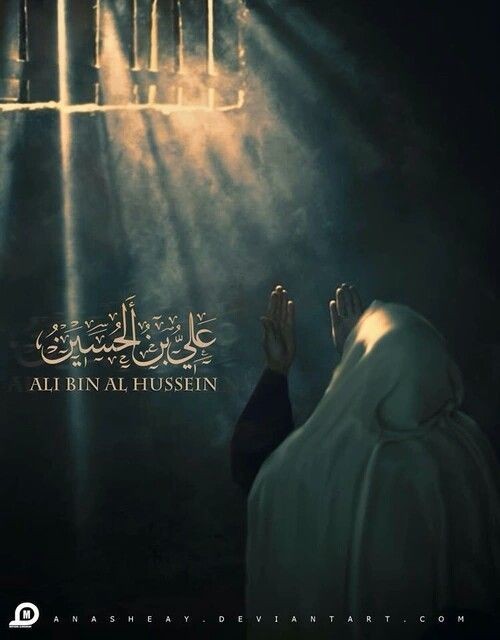
Explanation of the Sermon of Imam Sajjad in Damascus
In the foregoing pages we have reproduced the sermon delivered by Imam Sajjad in Damascus. Every word of that, sermon confirms the frankness, bravery and spiritual greatness I of the Imam and incidentally the value and necessity of such sermons and speeches delivered in the circumstances then prevailing become clear. It has also become evident that these sermons and addresses were not such that they should have been delivered as a consequence of sentiments, spiritual uneasiness and pressure of hardships.
Whatever the men and women of Ahlul Bayt said during the journey, which culminated in their martyrdom and captivity, and has been recorded in history, consists of speeches which were delivered, as and when it was appropriate and necessary, in accordance with a minute and properly chalked out plan.
Just as Imam Husayn knew well as to what he was doing and where he was going and what the result of his activities would be, other members of the Holy Prophet's family also possessed perfect insight, and whenever they felt it necessary to speak they ignored all their mental sufferings and depressions, and revealed the realities in such away that it was no longer possible to tamper with them.
It is, however, certain that at that time most of the people were not aware of the importance of their speeches and the depth of their object. Very often they thought about this very sermon of the fourth Imam that a bereaved person was crying and lamenting as his sentiments had been aroused and with the passage of time he would become calm and forget all that he was saying.
However, history not only recorded the sermon delivered by the fourth Imam but also recorded the words and poetic verses of Yazid and handed them over to the posterity, and placed them side by side with each other so that on one page of history the people should read that Imam Sajjad said in the city of Damascus with great dignity: "I am the son of Makkah and Mina. I am the son of Zamzam and Safa. I am the son of the Prophet of Allah ", and on the next page of history they should find that Yazid said: "There was nothing like revelation or prophet hood. On this pretext Bani Hashim wished to befool the people and to rule over them". Indeed, even if Yazid did not fear Allah and did not feel ashamed before the Holy Prophet why did he not fear the power of history and why was he not afraid that whatever he was saying would be recorded?
Individuals come in the world and depart and the nations are dislocated. However, the rise and fall of the nations and the change in governments does not affect history. It continues to occupy its place and carefully supervises the good and evil deeds of the individuals and the traffic of the nations. It does not confuse the account of one person with that of another and does not make anyone responsible for another's sin.
The Holy Qur'an says:
Those are a people who have passed away. Theirs is that which they earned, and yours is that which you earn. You will not be asked of what they used to do. (Surah al-Baqarah, 2:134)
History records the behavior of the people to maintain accounts in this world and the angels write them for accountability in the Hereafter.
In the second part of the speech delivered by lady Zaynab, daughter of Imam Ali in Damascus, (its first part has already been dealt with in the foregoing pages), she warned Yazid firstly of the accountability in the Hereafter and secondly of the accountability before history and the world. It was in this very part that she said to him: "O Yazid! On the day when Allah will be the judge and Prophet Muhammad will plead for justice and your limbs will give evidence against you, your father, who made you dominate the Muslims, will receive the punishment due to him. On that day it will become known what reward the oppressors get and whose place is worse and whose party is humble. (O enemy of Allah and O enemy of the son of the Prophet of Allah!) I swear by Allah that I consider you quite mean and incorrigible.
However, what can I do? Our eyes weep and our bosoms burn and our martyrs cannot come to life by reproaching or reprimanding you. Our Husayn has been killed and the partisans of Satan take us to the fools and take from Allah's wealth remuneration for showing disrespect to Allah. Our blood trickles from their hands and our flesh falls from their mouths and the pure bodies of our martyrs have been placed at the disposal of the wolves and the rapacious animals of the jungle. If you think that you stand to gain today by killing us, you will suffer for it on the Day of Judgment.
It will be the day on which you will possess nothing except your deeds. It will be the day on which you will shout at the son of Marjana and he will shout at you. It will be the day on which you and your followers will quarrel with one another by the side of the scale of Divine Justice. It will be the day on which you will learn that the best provision which your father made for you was that you should kill the descendants of the Prophet of Allah. I swear by Allah that I do not fear anyone except Him and do not complain before anyone else".
So far the daughter of Imam Ali warned Yazid of Divine punishment and accountability on the Day of Judgment. Then she invited his attention to his being accountable to history and told him that even if he did not fear Allah and did not believe in the Day of Judgment or had lost his faith on account of his sins, he should fear history that would disgrace him.
It was with this object in view that the daughter of Ali said: "O Yazid! Practice deceit, pursue your vicious plans and do whatever you can. I swear by Allah that the stain of disgrace which has been stamped on your name owing to the treatment meted out by you to us cannot be obliterated and this ignominy can never be converted to goodness".
The daughter of lady Fatima Zahra invited the attention of Yazid to the might of history and warned him against shame and disgrace. However, Yazid who, it might be said, had lost intelligence did not benefit from lady Zaynab's words and could not foresee the future of history. On this occasion the following tradition of the Holy Prophet quoted by Suyuti in his book Jami'us Saghir was applicable to Yazid: "When Allah wishes to execute His Decree He takes away intelligence from the intelligent people so that He may do with them what He likes. And, when what He wills is accomplished, He restores their intelligence to them and then they regret very much what they have done".
If Yazid had not been deprived of his intelligence he should have realized that after killing the son of the Prophet of Allah and his near ones, it would not be possible for him to rule the Muslims and to ignore this great Islamic tragedy. And even if he could not understand this fact he should have at least so much sense that he should not have attacked the very basis of Islam in his poetic verses and should not have announced openly his decision to take revenge upon the children of the Prophet of Allah and should not have denied the Divine revelation and the Prophethood of the Holy Prophet Muhammad.
Lady Zaynab, the daughter of Fatima Zahra concluded her speech with thanks to Allah and said: "Allah be thanked Who ended the task of the chiefs of the young men of Paradise with benevolence and made Paradise their resting place. I pray to Allah that He may raise their ranks and shower His blessings on them, for Allah is Almighty, All-Powerful".
It was this very speech which obliged Yazid to pretend I disgust for Ibn Ziyad and to curse him. It has been written that while sending the Ahlul Bayt to Madina Yazid called Imam Sajjad and said to him: "May Allah curse the son of Marjana. By Allah, if I had met your father I would have agreed to whatever he had suggested and asked for, and would not have allowed, as far as possible, that he should have been killed.
However, whatever has happened had been destined. I wish that you may write to me from Madina for all your requirements". Yazid did not say this to seek Divine pleasure. He was grateful to Ibn Ziyad that he had killed Imam Husayn and his companions and in reply to his letter seeking instructions about the Ahlul Bayt who had been made prisoners he (Yazid) had himself written that they should be sent to Syria. Yazid's cursing Ibn Ziyad had only a political tinge, and was the outcome of the pressure of public thinking.
The sermon delivered by Imam Sajjad in Syria and the Qur'anic verses recited by him in the bazaar in reply to a Syrian and whatever else the Ahlul Bayt said produced their result. So much so that the martyrdom of Imam Husayn was mourned first of all in Damascus, the capital of the caliphate, and in the caliph's own house.
The Syrian women also came to know the true facts about the tragedy of Karbala. Perhaps the month of Muharram of the year 61 A.H. had not yet come to an end when the news of the martyrdom of Imam Husayn reached various Islamic regions and their inhabitants became aware of most of the events that had taken place.
When the storm and thunder of the caliphate subsided the people came to their senses, felt grieved on account of what had happened and reproached themselves for their unpardonable negligence in helping the Imam and supporting Truth. Gradually the same correct view was adopted as had prompted the people of Kufa to invite the Imam before his martyrdom.
Later, they realized their mistake and decided to make amends for it, although the loss of an Imam like Husayn bin Ali, the grandson of the Holy Prophet, was irreparable and wailing and regret could not make amends for it. Mu'awiya had said: “After Ali bin Abi Talib the world has become barren and cannot produce a son like him".
Indeed it is so and another Ali cannot be born. Similarly it is Impossible to produce an Imam like Husayn, because there must be pure and sacred parents like his to give birth to a son like him. Every loss can be made good sooner or later, but how can the loss of such sublime personalities be compensated?
—Extract from A Probe into the History of Ashura
12 notes
·
View notes
Text
ISLAM 101: Muslim Culture and Character: Reflections (Tafakkur): Beauty and the Beautiful
Beauty elevates our hearts, awakens our souls with sweet excitement and appreciation, and then becomes the esthetic of our inner self. This hard-to-describe phenomenon, this sense that is present in our most joyous moments, is beauty. Even though this definition might seem too narrow, it is one interpretation. There have been elaborate interpretations on the notion of beauty from the point of view of esthetics. The focus now shifts on the relation of beauty with existence, nature, and human beings, or even beyond nature.
The meanings of beauty need to be redefined all together in order to be properly appreciated. Even though this has been done many times by masters of esthetics, we will try to explain our understanding of beauty in the context of our philosophy and belief, where every beautiful object is a mirror image or a reflection of Divine Beauty. Furthermore, anything that incites appreciation, love, and astonishment is seen as a reflection of Divine Beauty. Therefore, when our hearts are filled with these everlasting reflections, we are always able to perceive ourselves within beauty.
Through such a perspective, we conceive of even seemingly sad things, like death and decay, as being the essence of the most amazing harmonies, thus feeling ourselves to be among infinite beauty. In this way, we never feel upset or discouraged by the fading of our attachments. On the contrary, we experience the outward beauty of faith, breathe in the motivating air of hope, strive to do righteous deeds in the hope that we will fulfill our spiritual desires, seek sincerity in every deed, struggle to be tolerant, merciful, and constructive in all our behavior, and we strive to accept those deeds done for the sake of God as being the best moments of our lives. For us, faith becomes the light that illuminates our horizons, and a source of hope for our expectations. Only through faith can the chaos of nothingness be overcome. Only through faith can we reach the happiness that spreads from our hearts to the infinite Paradise. Through its vastness and power, faith becomes beautiful. Through faith one can find the Divine Unity, turn toward the Truth, and reach worldly and heavenly bliss, being released from all worries.
These are all the beauties within beauty that can be enjoyed through faith in God. The universe, events, objects, and human intellect that can evaluate these are all beautiful in that they help us find faith. Likewise, all righteous acts that stem from faith, good morals, and the desire to reach real faith and progress in the spiritual ranks of love and knowledge of God are also beautiful. Even acts of worship, or calamities that strike us, or sins that we find hard to resist, all of which may seem like hardship from the outside, represent beauty if we adopt the right attitude toward them. Real beauty belongs to God. He necessitates perfection, which is unique to Him alone. All of existence is a different mirror of God, reflecting His beauty as much as its potential allows. Stars sing of the beauty of light every night, they wink at us and remind us of Him through their unbelievable beauty. Moonlight touches the hearts with its softness and beauty and the sun spreads its mercy on each and every thing without distinction. It pours down its light and colors all day long, and sets, giving us another marvelous scene. The seas rise and fall through the tides, and take care of millions of living beings, like a merciful mother. Mountains, with a sheer size that makes our hearts pound, seem to be whispering something to the skies, playing along with the clouds. Mountains invite the rains, and stop the oceans with their proud look, yet they become mere earth. All the voices from the birds, sheep, forests, and mountains make up such a harmonious song, feeding our souls with the most peaceful rhythms. Yes, everything from the smiling skies to the thousands of glories of the Earth is so beautiful that they make us aware of the beauty of Heaven and we simply say “it just could not have been more beautiful!” And human beings themselves seem to be the most beautiful among all this beauty. With our outward looks, our inner world of senses, thoughts, and faith, we are like a sample, a replica of the universe. It is therefore apparent that humans have been created as a key to solve the riddle of creation. This is the way we should perceive beauty, seeing it only as a tool to interpret the real meaning of existence. In this enormous arena of beauty, everything can be seen as a point referring to the Creator. If, with our pure intentions and the right perspective, we can perceive existence as a mirror reflecting the beauty of The Beautiful, we can experience spiritual joy.
In fact, it should not be difficult to be aware of this. Sometimes, only a beautifully designed city or a place of worship is enough to make us enjoy this holy pleasure. Sometimes, a nice poem, a legend, a well-told story, or music that is meant to touch our human sensibilities, that wafts harmony into our soul, can draw us to this beauty, and make us hear the beauty of some other abode. However, the continuity of the joy that these spiritual pleasures give us and the avoidance of suffering depends on relating this worldly beauty to its real Owner. Otherwise, all will end at the most unexpected moment. The Sun will set and the Moon will disappear as our soul sinks into the darkness. It is impossible for souls in decline to appreciate and enjoy beauty. Since every beauty of this world fades away and leaves us one day, for our soul not to despair and to be able to enjoy the real and infinite beauty, it is necessary to establish the true Owner and Originator of the beauty we observe. A poet, relating this concept to a Qur’anic verse said: “Even faces as beautiful as the Sun set in the end. Thus I love not the temporary ones, but the infinite beauty that does not fade away.” Rumi illustrates the same point in the following verses: “My God, after seeing You, knowing You, I do not see the beauty of this world anymore …”
Yes, material beauty is just a means to acknowledge the Most Beautiful. Getting stuck at the “means” and not realizing the ultimate goal of this beauty, which shows us the real Beauty of God, is nothing more than being blind to the real goal, the real Truth. The Creator has placed all sorts of beauty and signs along the way so that we will not be blinded; however, for souls that have not reached this realization and which lack the faithful perspective, this beauty is nothing but a source of mischief, or means leading them to sin. But for those who can think clearly, even the love for the beautifully created is only the shade of the shade of the shade of the Beauty of the Beauty of God. As long as we are able to distinguish between the Real Source of Beauty and its reflection, the love we feel for the created is harmless. In this sense we can accept the created as beautiful.
Sometimes, we are aware of the innermost feelings in our souls which sense only the abstract beauty that fills our hearts with God’s love alone. At these moments, when beauty and love become intertwined, the soul, with its unique ability to see, feel, and hear, senses the Real Source in everything that it meets. Through its heavenly bestowed mechanisms, our soul perceives the essence of everything and attributes this to its real owner. It is the lack of this mechanism that renders the materialists and the naturalists short-sighted; they only observe the outer beauty of things, and fall short of perceiving the spiritual and infinite horizons. However, all beauty exists to take us to the Heavens, to the Godly realms.
Every human being displays themselves, their feelings, and their abilities in their works. This means that they are presenting something for others who will observe and perceive through the prism of their insight. God presents His works embellished with color, meaning, and content in order to make Himself known and loved for those seeking Him. We are sent to this world with the responsibility then, to affect and reshape things with His permission, to reflect our understanding, but also to be attentive to the true purpose and meaning of the creation of things. The universe and the happenings in it are thus perfect examples to imitate. However, no matter how perfect the example is, everyone will draw and interpret objects according to their abilities. Charles Lalo, commenting on esthetics once said: “The magnificent scene taking place at the time of sunset will remind a farmer of the rather unesthetic thought of dinner; the physicist, not of beauty or ugliness, but of rightness or wrongness of the analysis of a matter. Thus, the sunset is beautiful only for those who are aware of beauty.” Therefore, only those who see with God and hear with God can appreciate the beauty that spreads throughout existence as their senses are tuned to the spiritual realms.
A heart that beats with God’s love and which desires to meet Him, will be aware of many signs from God along the way. Such a heart will feel the excitement of meeting Him, as it reads the messages from the Moon, the sunset, the twinkling stars, colorful nature, the blowing of the wind, the snow… And such a heart would utter, in the words of one who has reached unity of sight and heart, “Everyone from everywhere is coming to watch Your beauty. From beneath and from above, every being is declaring You, displaying the reflections of Your beauty.” This heart looks at nature and objects, but sees the Unseen spiritual realms. This is the point of love and connection with God.
#allah#god#islam#muslim#quran#revert#convert#convert islam#revert islam#reverthelp#revert help#revert help team#help#islamhelp#converthelp#prayer#salah#muslimah#religion#mohammad#new muslim#new revert#new convert#how to convert to islam#convert to islam#welcome to islam#reminder#pray#dua#hijab
4 notes
·
View notes
Text
Tafsir Ibn Kathir: Surah Al-Baqarah Ayah 4-6
In the Name of Allah, the Most Gracious, the Most Merciful.
4. And who have faith in what is revealed to you and in what was revealed before you, and in the Hereafter they are certain.
Allah says;
And who have faith in what is revealed to you and in what was revealed before you.
Ibn Abbas said that, means, "They believe in what Allah sent you with, and in what the previous Messengers were sent with, they do not distinguish between (believing) them, nor do they reject what they brought from their Lord.''
And in the Hereafter they are certain. that is the resurrection, the standing (on the Day of Resurrection), Paradise, the Fire, the reckoning and the Scale that weighs the deeds (the Mizan).
The Hereafter is so named because it comes after this earthly life.
Attributes of the Believers
The people described here (2:4) are those whom Allah
described in the preceding Ayah, - (Those who have faith in the Ghayb and perform Salah, and spend out of what we have provided for them).
Mujahid once stated,
"Four Ayat at the beginning of Surah Al-Baqarah describe the believers, two describe the disbelievers, and thirteen describe the hypocrites.''
The four Ayat mentioned in this statement are general and include every believer, whether an Arab, non-Arab, or a person of a previous Scripture, whether they are Jinns or humans. All of these attributes complement each other and require the existence of the other attributes.
For instance, it is not possible that one believes in the Unseen, performs the prayer and gives Zakah without believing in what the Messenger of Allah and the previous Messengers were sent with.
The same with certainty in the Hereafter, this is not correct without that, for Allah has commanded the believers,
O you who believe! Believe in Allah, and His Messenger, and the Book (the Qur'an) which He has revealed to the Messenger, and the Book which He sent own to those before (him). (4:136)
And argue not with the People of the Book, unless it be in (a way) that is better, except with such of them as do wrong; and say (to them): "We believe in that which has been revealed to us and revealed to you; our Ilah (God) and your Ilah (God) is One (i.e. Allah)." (29:46)
O you who have been given the Book (Jews and Christians)! Believe in what We have revealed (to Muhammad) confirming what is (already) with you. (4:47)
Say (O Muhammad): "O People of the Book (Jews and Christians)! You have nothing until you act according to the Tawrah (Torah), the Injil (Gospel), and what has (now) been revealed to you from your Lord (the Qur'an).'' (5:68)
Also, Allah the Exalted described the believers;
The Messenger (Muhammad) believes in what has been revealed to him from his Lord, and (so do) the believers.
Each one believes in Allah, His Angels, His Books, and His Messengers. (They say,) "We make no distinction between any of His Messengers''. (2: 285)
and,
And those who believe in Allah and His Messengers and make no distinction between any of them (Messengers). (4:152)
This is a sample of the Ayat that indicate that the true believers all believe in Allah, His Messengers and His Books.
The faithful among the People of the Book, have a special significance here, since they believe in their Books and in all of the details related to that, so when such people embrace Islam and sincerely believe in the details of the religion, then they will get two rewards. As for the others, they can only believe in the previous religious teachings in a general way. For instance, the Prophet stated, When the People of the Book narrate to you, neither reject nor affirm what they say. Rather, say, 'We believe in what was revealed to us and what was revealed to you.'
However, the faith that many Arabs have in the religion of Islam as it was revealed to Muhammad might be more complete, encompassing and firmer than the faith of the People of the Book who embraced Islam. Therefore, if the believers in Islam among the People of the Book gain two rewards, other Muslims who have firmer Islamic faith might gain an equal reward that compares to the two the People of the Book gain (upon embracing Islam). And Allah knows best.
5. They are on guidance from their Lord, and they are the successful.
Guidance and Success are awarded to the Believers
Allah said,
They are, refers to those who believe in the Unseen, establish the prayer, spend from what Allah has granted them, believe in what Allah has revealed to the Messenger and the Messengers before him, believe in the Hereafter with certainty, and prepare the necessary requirements for the Hereafter by performing good deeds and avoiding the prohibitions.
Allah then said,
on guidance from their Lord, meaning, they are (following) a light, guidance, and have insight from Allah, And they are the successful.
meaning, in this world and the Hereafter. They shall have what they seek and be saved from the evil that they tried to avoid. Therefore, they will have rewards, eternal life in Paradise, and safety from the torment that Allah has prepared for His enemies.
6. Verily, those who disbelieve, it is the same to them whether you warn them or do not warn them, they will not believe.
Allah said,
Verily, those who disbelieve, it is the same to them whether you warn them or do not warn them, they will not believe. (Verily, those who disbelieve) meaning, covered the truth and hid it. Since Allah has written that they would do so, it does not matter if you (O Muhammad) warn them or not, they would still have disbelieved in what you were sent with.
Similarly, Allah said,
Truly, those against whom the Word (wrath) of your Lord has been justified, will not believe. Even if every sign should come to them, until they see the painful torment. (10:96-97)
About the rebellious People of the Book, Allah said,
And even if you were to bring to the People of the Book (Jews and Christians) all the Ayat, they would not follow your Qiblah (prayer direction). (2:145)
These Ayat indicate that whomever Allah has written to be miserable, they shall never find anyone to guide them
to happiness, and whomever Allah directs to misguidance, he shall never find anyone to guide him. So do not pity them - O Muhammad - deliver the Message to them. Certainly, whoever among them accepts the Message, then he shall gain the best rewards.
As for those who turn away in rejection, do not feel sad for them or concerned about them, for (Your duty is only to convey (the Message) and on Us is the reckoning (13:40), and, (But you are only a warner. And Allah is a Wakil (Disposer of affairs, Trustee, Guardian) over all things), (11:12).
Ali bin Abi Talhah reported that Ibn Abbas said about Allah's statement, (Verily, those who disbelieve, it is the same to them whether you (O Muhammad) warn them or do not warn them, they will not believe),
"That the Messenger of Allah was eager for all the people to believe and follow the guidance he was sent with. Allah informed him that none would believe except for those whom He decreed happiness for in the first place, and none would stray except those who Allah has decreed to do so in the first place.''
#allah#god#islam#muslim#quran#revert#conevrt#convert islam#revert islam#reverthelp#revert help#revert help team#help#islamhelp#converthelp#prayer#salah#muslimah#reminder#pray#dua#hijab#religion#mohammad#new muslim#new revert#new convert#how to convert to islam#convert to islam#welcome to islam
1 note
·
View note
Link
Islam 101: Understanding the misunderstood religion
Currently, the Islamic faith is under tremendous scrutiny from all sides. I often suspect that pundits who deliver their ideological quips regarding my faith do not have much in the way of direct experience nor understanding when it comes to this tender subject. The purpose of this column is to communicate information on the needlessly enigmatic subject of Islam.
Islam is a popular religion. The faith has nearly 1.6 billion practitioners — thus making it the second most practiced religion behind Christianity. Nearly 23 percent of the world is Muslim. The faith is currently growing at a rate that is believed to be the fastest among all major belief systems. Unfortunately, the previous sentence might give some readers cause for alarm. However, these impulses might be neutralized with increased exposure to Muslims and knowledge of the Islamic faith.
The word "Islam" in Arabic means submission. Muslims are those who submit to Allah (“God”). The faith is not named after a particular people, like Judaism, or a particular individual, like Christianity.
Interesting side note: the word “God” is derived from the old Germanic word “Gott” or “Gud," meaning “to invoke or sacrifice to.” Knowing as much as we know about Jesus, or "Isa" in Arabic, he most likely never referred to his deity as “God.” However, there is ample evidence that the namesake he used for his deity had a pronunciation closer to “AaLaH” or “AlaHa," a generic root word for “God” in Aramaic.
The necessary beliefs in Islam are of Allah, the angels, the Quran (Islamic holy scripture), the prophets, the Last Day (day of judgement) and the afterlife. A pivotal belief in Islam is that there is an inherent separation between the Creator and the creation. In Islam, Allah is the one creator and deity, and his creations possess no holiness or supreme powers. This logic is extended to all of the prophets. We believe that the prophets were humans of the highest character and piety, yet they were not worthy of worship.
Also, since no humans hold holiness, we see no need to confess our sins to men, or to seek spiritual endowment from anyone other than Allah. Allah states in the Quran that He rewards good behaviors, among the most frequently mentioned of these are speaking the truth, being kind to family, honoring parents, giving charity, feeding the poor, freeing slaves and studying. Allah also states in the Quran that He punishes bad behaviors; among these are the worship of idols, stealing from orphans, disobeying one’s parents, cheating on one’s spouse, giving false testimony, committing murder or suicide, or enslaving a free person.
Interesting fact: the words "heaven" and "hell" are both repeated in the Quran exactly 77 times.
There is a profound degree of weight in Islam’s messages and, like all powerful messages, they can be used for depravity in the wrong hands. Many men, as we have seen throughout history, exploit feelings of fear, passion and awe to achieve the same old patriarchal end goals: autocracy, the subjugation of women and the suppression of freedom. This has happened with other faiths and other cultures, although Islam does not necessarily promote a single culture. The fault is not in the faith itself, but in the individual practitioners and the misguided outsiders.
This assertion is shared by top United States security officials. Current United States National Security Adviser Lt. Gen. H. R. McMaster states that terrorists are “un-Islamic” and that we should avoid the term “radical Islamic terrorism” because it is inaccurate.
In my opinion, the best way to neuter terrorism by self-proclaimed Muslims is to ensure that the majority of Muslims around the world have ensured human dignity and fair treatment. When groups of people feel that they are under attack, they tend to lose objectivity and are more prone to radicalization. When Muslims see the injustices being carried out in places like Syria, Palestine and Iraq, it causes many of them — us — to feel demoralized, threatened or resentful.
Under these conditions, the most brutal and archaic of voices in the Muslim world are granted credibility. This phenomenon is present across all societies, including the United States. The brutality here perhaps is not on the level of the Middle East, but neither is the perceived threat among the citizenry. Canada, in the minds of radicals, has issued the Muslim world few sleights, and as a result, their nation has experienced considerably fewer terror attacks than other western nations. Terrorism is unacceptable under any circumstance, but we would be wise to understand and limit its causes.
Back to discussing the faith itself — in Islam, practice is based upon five essential pillars:
Shahada: to declare one's belief in Allah and the prophetic role of Muhammad.
Salah: to pray five times a day (dawn, noon, afternoon, sunset and evening).
Zakat: to give charity to those in need.
Sawn: to fast from food, liquids and other bodily pleasures during daylight hours in the month of Ramadan.
Hajj: to make a pilgrimage to Mecca at least once in a lifetime if it is physically and financially feasible.
Some other interesting nuggets pertaining to the practice of Islam:
Abstinence is to be practiced until marriage.
Mind-altering substances are prohibited.
The consumption of swine is prohibited.
While Islam is a strict faith compared to many other belief systems, an often under-communicated aspect of our faith is the great mercy of our Creator. Two epithets that we regularly use for Allah are “Al Rahman” and “Al Raheem," which translate to “the most compassionate” and “the most merciful.” Human beings sin, naturally — Allah understands, and He rewards our struggle and attempts at self-improvement. In fact, it could be said that Allah grades on a curve. The more difficult our fight to righteousness, the greater our reward with Him in the end.
A source of grave misunderstanding regarding the Islamic faith concerns the word "jihad," which literally means “struggle.” The concept of jihad revolves around a struggle for the greater good and the study, practice and preaching of Islam. Unfortunately, in the term’s original usage, there was a lot of room left for interpretation. While both suicide and murder are explicitly listed as some of the worst sins in our entire faith, many people imagine that some gruesome combination of the two ensures paradise and 72 virgins — I can assure you quite the contrary.
There are many ways to fight for the greater good; in fact, I hope I am enacting jihad right now.
Also, many people assume that the Islamic faith is hostile toward the world’s other religions. This is not so. Our Quran reads, “Rest assured that Believers (Muslims), Jews, Christians and Sabians — whoever believes in Allah and the Last Day and performs good deeds — will be rewarded by their Lord; they will have nothing to fear or to regret (22.40).” The Prophet’s life mission, endowed upon him by his Creator, was to spread the word of Islam. Yet, when it came to the sizable Jewish community right in Madinah, he established a peace agreement with them and allowed them to continue practicing their religion in peace.
In a letter to the Christian king of Abyssinia, he ends, "I have conveyed the message and now it is up to you to accept it. Once again, peace be upon him who follows the true guidance.” He employed no harassment — and he was the Prophet. Muslims believe that they know the truth, when people believe they know a truth that others do not, they like to get others up to speed. However, many Muslims around the world today would be wise to remember the Prophet’s gentle and earnest ways.
Another source of misunderstanding regarding the Islamic faith revolves around the female usage of hijab — a garment often worn to cover hair. Many in the West have made the argument that the hijab and the burka, a garment that covers nearly the full female body, are instruments of female subjugation. While it is true that some men, like in all societies, attempt to levy control over what the women in their proximity wear, I would argue that the original and true purpose of these garments was to conduce female humility and equality.
Last time I checked, men like to see what women look like — and as candidly as possible. This ogling can have adverse effects for women, including the inciting of passions in unwanted onlookers and the disregard for female cognitive and personal abilities. Islamic scholar Muhammad al-Bukhari states that “a woman is married for her deen (piety), her wealth or her beauty. You must go for the one with deen.” This quote expresses that the quality of a woman should be determined by her character, rather than her beauty or wealth. Martin Luther King Jr. expressed his view on the very meaning of human equality when he stated that his children should “not be judged by the color of their skin but by the content of their character.” Humility is an essential value in our faith, and it is not only mandated in the dress of females. Males must stay covered from their shoulders to their knees and refrain from accessorizing with gold or silk.
Contrary to the beliefs of many, Islam since the beginning has mandated women’s rights. In Islam, women have a right to property, education, lawsuit initiation, divorce initiation, alimony and suffrage. Also, falsely slandering a woman’s reputation is a grave sin — as well as spousal abuse and forced marriage. Our beloved Prophet’s own wife, Khadija, could arguably be seen as an original proponent of feminism. She was a reputable businesswoman who traded goods from Mecca to Yemen, had a history of turning down marriage proposals, asked the Prophet to marry her, gave charitably and was the very first person to accept Islam after our Prophet. We revere her.
Interesting fact: the words “man” and “woman” are both repeated in the Quran exactly 23 times.
I will end this article with
Translations of some popular Muslim phrases:
Assalam Alaikom — “Peace be upon you.” — This phrase is a common greeting.
Allahu Akbar — “Allah is great.” — This phrase can be said out loud or simply thought of on a regular basis.
Alhamdulillah — “Praise be to Allah.” — This phrase is commonly used to express satisfaction with life.
Inshallah — “If Allah wills.” — This phrase is commonly used when Muslims plan or ponder future events.
Bismillah — “In the name of Allah.” — This phrase is commonly used before a Muslim starts something.
Subhanallah — “Glory to Allah.” — This phrase is commonly used to express amazement in regard to things.
Mashallah — “God has willed.” — This phrase is commonly used to express amazement in regard to human achievement.
La ilaha illa Allah — “There is no god but Allah.” — This phrase can used at any time.
#Islam#Religion of Peace#some popular Muslim phrases#Islam: The Misunderstood Religion#Meaning of Islam#What is Islam#Peace be upon you#Muslim#Muslim phrases#The Misunderstood Religion#PeaceTV#PeaceTube#PeaceNetwork#PeaceMission#Islam is the Mission of all prophets and messengers#Muslim is a universal group of servants who are humble to the one & only one true God#Islam is the original message from Allah given to all prophets it is not a new religion
4 notes
·
View notes